- Skip to primary navigation
- Skip to main content
- Skip to primary sidebar
- Skip to footer
Journey With Confidence

5 Full-Time RV Living Expenses You Need To Budget For

- RV Lifestyle
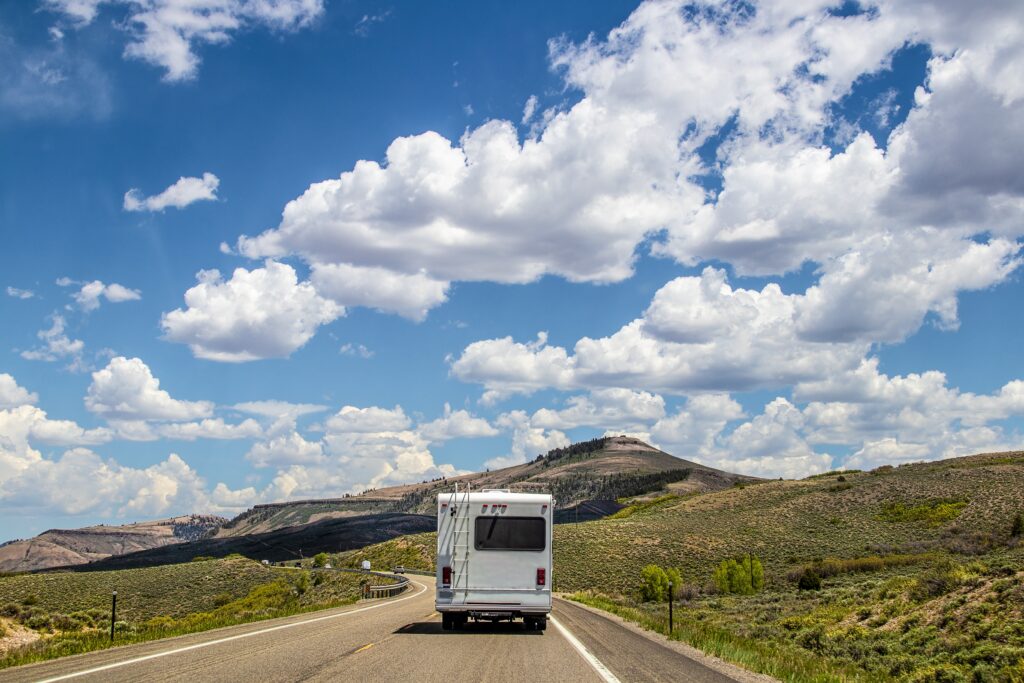
5 Full-Time RV Living Expenses & Costs To Consider
Buying an RV is a significant investment, and there are a lot of hidden costs that you might not expect. Obviously, you have to deal with the big things like gas, food, and routine maintenance . But there are also a few unexpected RV living expenses that can catch you off-guard if you’re not prepared.
Keeping a large emergency fund can help offset many of these, but you may want to incorporate some new items into your RV budget. Below we have 5 RV living expenses that can add up over time. Many of these are cheap if you only deal with it once or twice, but if you need to pay for them regularly, your budget could take a hit. Let’s explore some of the things you need to watch out for!
1. RV internet
In the modern world, many of us rely on the internet for work, socialization, and staying connected to sources of help. For most people, it’s isn’t viable to go for long stretches without access to the internet. Luckily, there are mobile internet solutions available for RVers.
Some campgrounds and resorts may offer free Wi-Fi and hotspots, but sometimes you need to fend for yourself. If you plan on camping off-grid, this is especially true. However, internet services are not free and many of them can be quite expensive. If you upgrade to high-speed internet, this is even more true. Again, most people need internet in their RVs, so this cost cannot be completely avoided.
Some people may choose to use some of the cellular data from their phone, but this could also incur an additional cost if your plan is limited. Other options include using satellite and Wi-Fi hotspots. These different options come in a range of prices, but you should expect to pay between $75-$250 per month (depending on the plan and carrier you choose).
If you’re not ready for this cost, it can sneak up on you and start to cut into other parts of your budget. Make sure you are aware of the plan you have and the monthly rate you’re paying. If it goes up, you need to be aware of it and adjust accordingly. RV living expenses can fluctuate, so you should have some extra money set aside to combat these changes.
2. Short term campgrounds
When you travel in an RV, you will usually stay at campgrounds, resorts, and RV parks. Of course, you will need to pay to stay at these locations and gain access to their various hookups and amenities.
One of the most unexpected RV expenses comes into play when it comes to determining how long you should stay in one location. Some people are just taking short trips and may only stay for a night or two. Although this may seem cheaper upfront, if you stay short-term at a ton of different campgrounds, the price can build up faster than you imagined.
Short-term rates are often much higher than long-term or monthly rates. If you plan on living in your RV full-time or taking an extended trip, try to stay at a single campground for as long as possible. Monthly rates are quite a bit lower than bouncing around to a bunch of different spots. Plus, if you find a spot you like, there’s no reason to get out of there in a hurry!
You can actually save a fair amount of money by staying put and committing to a single campground/resort for a long period of time. Next time you plan a trip, check out the best places to stay in the area and try to stick with one or two of them.
Laundry is annoying to deal with whether you’re at home or in an RV! In addition to being time-consuming, this chore can also start to make a dent in your wallet. Some RVs come with a washer and dryer installed, but this feature is usually limited to larger and more luxurious models.
Some campgrounds also offer laundry facilities, but it’s not guaranteed that these will be free to use. Many of these are coin-operated and you will usually need to bring your own detergent. In some cases, you may need to rely on public laundromats to clean your clothes during your trip.
Washing a single load of laundry isn’t very expensive. It usually costs between $2-$4 to wash and dry a single load, and just about everybody can manage that. The problem comes when you travel for long stretches of time and need to return over and over again. If you need to wash multiple loads and go a couple of times a week, the cost of laundry will begin to mount.
Although you may be able to reduce the amount you need to wash, this expense cannot be avoided forever. This expense is particularly troublesome for large families that go through a lot of clothes between them all. You may want to keep an eye out for RV parks that offer free laundry services so you can avoid this cost as much as possible.
4. Toll roads
This next RV living expense is applicable to RVers who prefer to travel quite a bit. Some people like to pick a campground or two and stay in that area, while others like to road trip and explore the country. An irritating and expensive thing you’ll run into is toll roads.
Toll roads are inconvenient for everyone, but RV owners have it even worse. If you’re towing a camper behind you or exceed a certain weight limit, you may have to pay extra to drive on a toll road.
To mitigate this cost, you may want to buy an RV TollPass online. You still need to pay for it, but the cost may be lower overall than you would have to pay otherwise. The cost of these passes is about $95 , whereas you could end up paying over $100+ without one.
The northeast region of the U.S. has the highest concentration of toll roads, so if you plan to travel in this area, a TollPass might be worthwhile.
You can also save money by planning your travels with RV LIFE Trip Wizard . While planning an RV safe route, you can adjust your settings to avoid toll roads as well as highways, unpaved roads, ferries, and tunnels.
5. RV storage
Finally, you need to consider what happens to your RV when you’re not using it. Even when it’s in storage, it will still cost you money! This is an RV living expense that’s easy to overlook but important to keep in mind. Paying for RV storage will ensure that your vehicle is kept in a secure and temperature-regulated environment. However, it does cost quite a bit .
Most indoor RV storage costs about $100 per month, as opposed to outdoor RV storage, which is closer to $50 per month. You could also take it upon yourself to store the RV in your own yard or garage, but this requires more effort on your part as well as a sacrifice of space.
If you plan to store your RV for several months out of the year, this expense could cut into your budget. Good storage is often worth the cost, but you need to know what you’re signing up for. In some cases, it might be more practical to handle the storage yourself.
One of the best parts about RVing is engaging with the community of traveling enthusiasts. iRV2 forums allow folks to chat with other RVers online, and get other perspectives on everything RVing, including products, destinations, RV mods, and more.
Related articles:
- Budget Travel: 10 Ways To Save Money On Your Next RV Trip
- What Is The Average Monthly Cost Of Full-Time RVing?
- Three Steps to Make a Full-Time RVing Budget

RV Storage Fees: Pricing Guide for 2024
Are you planning to store your recreational vehicle but unsure about the cost? RV storage fees can vary depending on different factors, including location, storage duration, and facility amenities.
RV storage fees will depend on factors like location, facility amenities, and storage duration. On average, monthly fees range from $50 to $450. Indoor storage tends to be pricier, averaging $100 to $450 per month, while outdoor storage is cheaper, averaging $30 to $100 per month. Additional costs may include security deposits and extra services like maintenance or valet parking. Prices may fluctuate based on demand and seasonal factors.
In this article, we will provide a comprehensive guide on RV storage pricing for 2024. Whether you are looking for short-term or long-term storage, we’ve got you covered.
Key Takeaways:
- RV storage fees can be influenced by various factors, including location, storage duration, and facility amenities.
- Researching different storage facilities and comparing prices can potentially help you find more affordable storage rates.
- Negotiating with storage facility managers and considering long-term contracts can help you secure the best value for your RV storage fees.
- Understanding the average cost of RV storage can help you budget and plan accordingly.
- By exploring different options and conducting thorough research, you can find a suitable and cost-effective solution for your RV storage needs.
Average Cost of RV Storage
One of the key factors to consider when looking for RV storage is the cost. The average cost of RV storage can vary depending on several different factors. Location is one of the biggest influencers on the cost of RV storage. RV storage facilities located in highly populated and urban areas often have higher prices due to the higher cost of real estate and greater demand.
Facility amenities can also have an impact on the price of RV storage. Indoor storage facilities with climate control or power outlets may have higher prices than outdoor facilities with more limited amenities.
Table: Average Cost of RV Storage based on Storage Duration
Additionally, the duration of the storage can also affect the cost. RV storage facilities may offer discounts for longer storage durations.
By understanding the average cost range for RV storage, you can better estimate how much you may need to budget for your storage needs. Keep in mind that costs may vary based on location, amenities, and storage duration.

Finding Affordable RV Storage Rates
If you’re looking for ways to lower your RV storage fees, there are strategies you can use to find affordable rates. Here are some tips:
- Research different facilities: Start by looking at different storage options in your area. Check out facilities that offer RV storage and compare their prices.
- Compare prices : Look at the cost of RV storage at different facilities. Make a spreadsheet or table to easily see the pricing differences and select the most affordable option.
- Consider off-season storage : Depending on where you live, you may be able to find special rates for RV storage during the off-season. This could save you money.
By following these tips, you can locate affordable RV storage rates and potentially save money on your storage fees. To further assist you in your search, be sure to compare cheap RV storage options using search websites like NestAway – these aggregate listings offering everything from outdoor to covered storage lots, often at more competitive prices than a singular RV storage facility can offer.
Comparing RV Storage Prices
If you’re looking for the most cost-effective RV storage prices, it’s essential to compare the different storage options. You can create a table to compare the prices from various facilities in your area. Ensure to check the amenities offered by the facilities on your list so that you’re not surprised later by any added expenses.
Comparing RV storage prices can help you find the best deals on RV storage and save you money over time.
Now that you know how to find affordable RV storage rates and compare RV storage prices, let’s move on to securing the best value for your RV storage in the next section.
Securing the Best Value for Your RV Storage
When it comes to RV storage, securing the best deals can help you save money in the long term. Here are some tips and strategies:
- Negotiate storage rates : Don’t be afraid to negotiate with storage facilities to get a better deal. Research the average cost of RV storage in your area and use it as a starting point for negotiations. Also, consider negotiating a longer rental period to secure a discounted rate.
- Understand any additional fees : Some storage facilities may have additional fees that are not included in the basic rental rate. These can include fees for security deposits, electric hookups, or insurance coverage. Make sure you understand these fees upfront to avoid any surprises later on.
- Consider long-term storage contracts : Many RV storage facilities offer discounts for long-term storage contracts. If you plan on storing your RV for an extended period, consider signing a longer contract to save money over time.
To help you make informed decisions on the best deals, compare RV storage costs from different facilities in your area. Take into account factors such as location, security measures, and customer reviews. With these tips in mind, you can secure the best value for your RV storage costs.

In conclusion, knowing how much RV storage fees cost is crucial for any RV owner looking for storage options. By exploring the average cost of RV storage, finding affordable rates, and securing the best value, you can make informed decisions about your storage needs and budget accordingly. Remember to research different facilities, compare prices, and consider off-season storage to potentially save money on your RV storage fees. By following the tips and strategies provided in this article, you can find the most suitable and cost-effective solution for your RV storage needs without breaking the bank.
What is the average cost of RV storage?
The average cost of RV storage can range from $50 to $500 per month, depending on various factors. This includes the size of the RV, whether it is stored indoors or outdoors, and the location of the storage facility. Keep in mind that prices can also fluctuate based on the demand for storage in your area.
How can I find affordable RV storage rates?
To find affordable RV storage rates , it’s important to research and compare different facilities in your area. Look for facilities that offer competitive pricing and consider factors such as location, amenities, and security measures. Additionally, consider storing your RV during the off-season or exploring discounted rates for long-term storage options.
How can I secure the best value for my RV storage?
To secure the best value for your RV storage, consider negotiating with storage facility owners or managers. They may be willing to offer discounts or incentives, especially for long-term storage contracts. It’s also essential to understand any additional fees, such as administration or security deposit fees, which can impact the overall cost. By comparing different options and considering all factors, you can ensure that you’re getting the best value for your RV storage fees.
What can I expect to pay for storing an RV?
The cost to store an RV can vary depending on factors such as location, storage type (indoor or outdoor), and amenities provided by the facility. On average, monthly storage fees can range from $50 to $500. However, it’s crucial to research and compare prices from different facilities to get an accurate estimate based on your specific needs and location.
Jeff Campbell
Jeff Campbell travels on and off with his 3 daughters in a Newmar Baystar Class A Motorhome. He writes extensively on both RVs, campgrounds, parenting on the road tips, remote learning & schooling, and much more! Click Here to learn more about me. Click Here to learn more about my site. Editorial Policies.
Leave a Reply Cancel reply
Your email address will not be published. Required fields are marked *
Save my name and email in this browser for the next time I comment.
Recent Posts
RV vs Regular Toilet Paper: Key Differences
When it comes to choosing the right toilet paper for your recreational vehicle (RV), there are some important considerations to keep in mind. But what's the difference between RV toilet paper and...
Essential Family Camping Gear 2024 Must-Haves
When it comes to family camping, having the right gear can make all the difference in creating lasting memories and enjoying the great outdoors. Whether you're planning a weekend getaway or a longer...

- Types Of RVs
- Tow Vehicles
- Maintenance & Repairs
- RV Power & Electrical Supplies
- RV Appliances
- Living In An RV
- Travel & Destinations
- RV Gear Buyer’s Guides
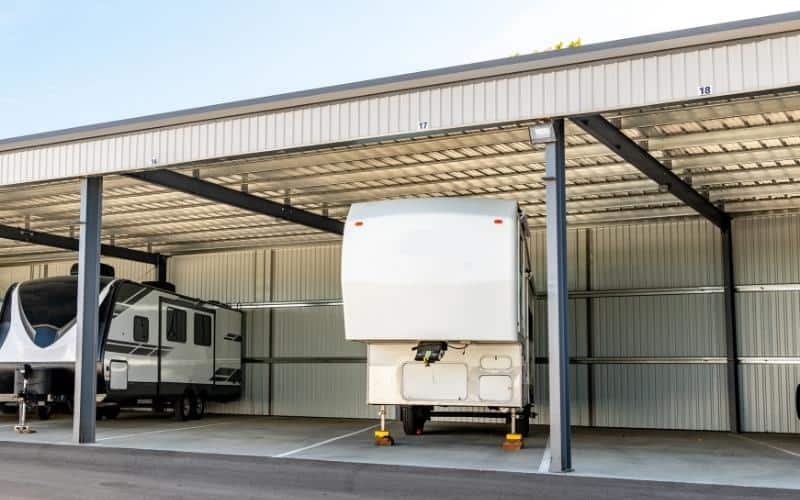
Averaging RV Storage Rates: How Much Does It Cost to Store an RV?
- Last Updated: April 3, 2024
- 8 minutes read
The average cost to store an RV is around $130 monthly. However, prices range anywhere between $50 and $450 per month, depending on your area, the size of your RV, and the storage amenities you want.
According to Storage.com, a browse-and-compare website for renting and reserving self-storage units, an outdoor storage spot with no covering can cost $30 to $100 monthly, while a non-climate-controlled indoor storage unit may cost $50 to $125 monthly.
Having lived the RV lifestyle for a decade and counting, I have noticed that storage is a huge challenge for many new RVers, especially those who can’t store it where they live. In this article, you will learn all the relevant details about storing your camper, including the price to expect and the best storage options to go for based on your needs.
What Affects RV Storage Costs?

Credit: John Marruci
The location where your RV is parked, the amenities you want, and the type and size of your RV are the significant factors that will ultimately determine how much it will cost you to store the unit.
With an understanding of how these factors work, you will know the price range to expect. Let’s look into them in detail:
1. Your Location
How much it costs to store an RV varies from state to state. In popular areas such as Arizona , where I’m currently based, the cost is higher due to increased demand.
For example, I spent $940 for outdoor storage of my Winnebago Journey Class A for six months using Southwest RV storage service in Glendale.
However, in less-traveled areas such as Alaska, you can find much cheaper rates. Some RVers have disclosed on forums that they spend $600 for eight months in a heated facility in those areas.
2. Your RV Type and Size
Many RV storage facilities, especially those with indoor options, base their rates on the size and type of unit.
That is, if your camper requires less room at their facility, you will end up paying less money. The storage size available for smaller rigs at many facilities typically measures 10’ x 25’ and 10’ x 30’.
Here’s a rundown of rig sizes and how they influence the storage size you’ll need:
- Smaller rigs : If you have the 2021 Lance Camper 1050S, Class B’s (2011 Roadtrek 190 Popular), or a small travel trailer (fiberglass Scamps and Casitas), then your rig will fit into the dimensions mentioned above.
- Mid-size motorhomes : If you’re in a 30’ rig such as the 2012 Forest River Cherokee or 2011 Fleetwood Tioga, you will want a space 35’ long or more.
- Large travel trailer : Motorhomes of 35’ or more will need a 40 to 50-foot space at any indoor storage facility. Class A’s are the tallest of all the RVs and, therefore, will require a height clearance of around 14’ or more.
Pro Tip:
- Storing a larger rig will put you at the higher end of the price range, while a smaller rig will put you on the lower end of the price range.
3. Storage Amenities
The extra perks that come with a storage service can also influence the price.
In cold climates, such as New England and the Midwest, consider choosing a heated storage facility.
It will cost more monthly, but you won’t have to worry about winterizing your rig like you would if it were parked outside in the snow. In more mild climates, an outdoor area is fine.
The table below presents a breakdown of the amenities and their respective RV storage cost :
Some full-service RV storage facilities allow RV owners to purchase their RV storage, offering a one-off payment instead of a monthly payment. Luxtorvip.com in Coachella and Prescott is an excellent example, where the sales of space start at $180,600.
4. Lease Terms
The length of your storage agreement can affect the cost. Some facilities offer discounts for long-term commitments, while others may charge higher rates for short-term rentals.
For example, Southwest RV storage services charges $154 monthly for storing a 40’ RV. But if you pay for a year upfront, you’ll be charged $1,663, which means you’re saving $185 due to lease terms.
Many other storage services condition their prices based on lease terms and the number of monthly payments covered upfront.
5. Demand and Seasonal Factors
You can expect prices to be higher during peak RV usage seasons or in areas with limited storage availability.
In summer, when more people use their RVs for vacations, storage prices may go up. Winter sees higher demand in colder places for protection against snow.
However, off-peak seasons, like fall or spring, might have lower prices.
Now that you know the factors that can influence how much you pay to store your RV let’s look at the differences between RV storage costs.
RV Storage Costs – Comparison
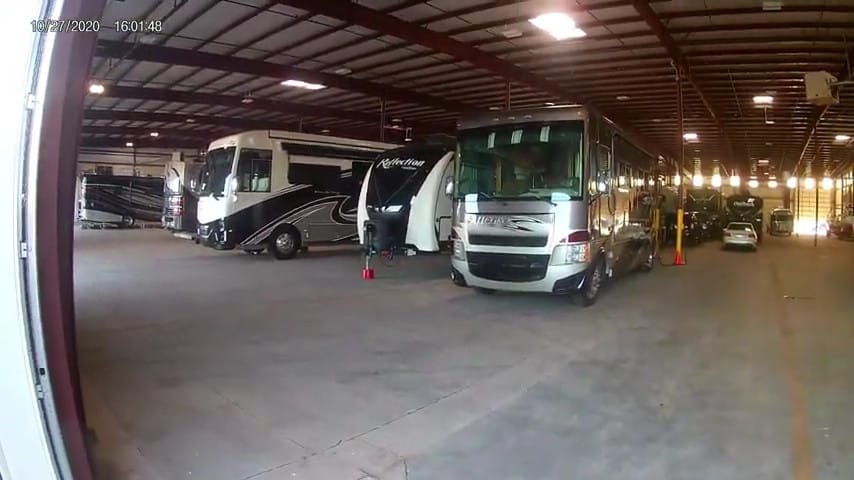
Credit: Country Coach Guy
After combing through the price list of twenty popular RV storage facilities in different states, I’m able to come up with this basic price guide, which factors the size of storage that’s needed.
Remember, these prices vary depending on where the storage facility is located.
Pro Tips:
- The more perks of storage you want, the more money you should be prepared to spend.
- A heated indoor storage facility is the best option since you won’t have to worry about pipes freezing or rodents moving in.
- If your camper is going to stay outside and uncovered, I recommend you invest in an RV cover , wheel cover s, and possibly chocks to keep the tires off the ground.
Where Can I Store My RV?

Credit: John Marucci
There are many options for storing RVs, but your decision will depend on security, accessibility, and cost. Here are several options for RV storage:
1. Home Storage
If you have sufficient space on your property, you can store your RV in your driveway or yard. If your garage is large enough, that’s another viable option, especially to protect the rig from the elements.
However, you have to check local regulations and homeowner association rules, as some areas have restrictions.
- Convenient and accessible
- There is no additional cost if you have enough space on your property.
- Some neighborhoods or local regulations may restrict RV storage on residential properties.
- Exposure to the elements unless covered
- Theft risk from outsiders.
2. RV Storage Facilities
Many facilities offer open-air parking spaces. Some storage facilities offer covered storage that will protect your rig from sun and weather. As you’ve seen in the previous section of this post, indoor storage options are more expensive.
You can find the one closest to you by simply searching “ RV storage facility near me ” on Google.
- Dedicated facilities with security measures
- They often have amenities like electricity, dump stations, and wash areas.
- Monthly rental fees
- It may not be as conveniently located as stored at home.
3. Self-storage Units
Some self-storage facilities offer larger units suitable for RV storage. Similar to RV storage facilities, some of these sites provide outdoor parking spaces for RVs.
I like this option, especially when I consider the flexibility in the lease terms and duration process. In most of these sites, you can choose the duration of storage based on your needs.
- Flexible lease terms and duration options
- Various unit sizes to accommodate different storage needs
- Security features like surveillance and gated access
- No long-term commitment required
- Lack of on-site assistance for tasks like loading
4. Campgrounds
If you frequently use a particular campground, keeping your RV there eliminates the need to transport it back and forth, saving time and effort.
Some campgrounds offer seasonal storage for RVs. This can be convenient if you plan to use your RV during certain times of the year.
- Convenient for frequent visitors to a particular campground
- Access to campground amenities and possibly on-site staff
- Proximity to camping sites for easy trip preparation
- Limited availability of storage spaces.
- Additional cost on top of camping fees
- Security measures may not be as extensive as dedicated storage facilities
5. RV Dealerships
Some RV dealerships offer storage services for their customers. This can be convenient if you purchase your RV from them.
You may get free storage service for a year in their facility.
The best part of this option is that you have easy access to to the service department if your RV needs maintenance or repair.
However, in many cases, access to your RV may be restricted to the dealership’s business hours.
- Easy access to storage at the place you purchase your RV
- Dealerships may understand the specific needs of the RV models they sell.
- Convenient access to maintenance and repair services if needed
- Storage service can be accessible for a duration if you purchased from the dealer
- Limited space may be available.
- Access to your RV may be restricted to the dealership’s business hours
- Not all RV dealerships provide storage service.
What Is The Cheapest Place To Store an RV?
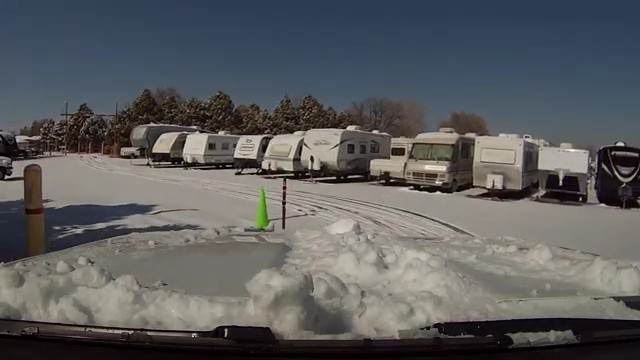
Credit: Colorado Camperman
Home storage is the cheapest option to store an RV because you don’t need to pay for it.
However, not everyone would prefer to keep a rig in the neighborhood due to theft risk, exposure to elements, or neighbors’ inconvenience, especially if there are two or more campers.
In that case, the next cheapest place worth considering is any self-storage facility nearby. These facilities usually have convenient, cost-effective RV and boat storage solutions with lower costs than most dedicated RV storage locations.
What RV storage option do you think suits you best and why? I’d love to hear your thoughts in the comments below.
About Author / Aaron Richardson
Aaron Richardson is an expert RVer and the co-founder of RVing Know How. Aaron, along with his wife Evelyn, has been living and traveling in their Keystone Fuzion RV since 2017. Their adventures span across the country and beyond, including memorable RVing experiences in Mexico. Aaron's passion for the outdoors and RVing shines through in his writings, where he shares a blend of travel stories, practical tips, and insights to enhance the RV lifestyle.

How To Remove RV Light Covers (Interior & Exterior)
How to fix an rv toilet leaking on the floor.

Leave a Comment Cancel reply
Your email address will not be published.
Save my name, email, and website in this browser for the next time I comment.
You Might Also Like
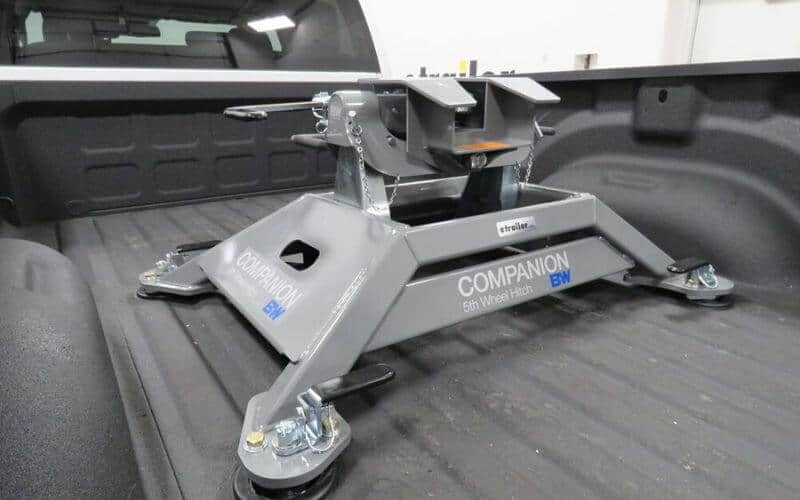
How Much Does It Cost To Install A 5th Wheel Hitch?
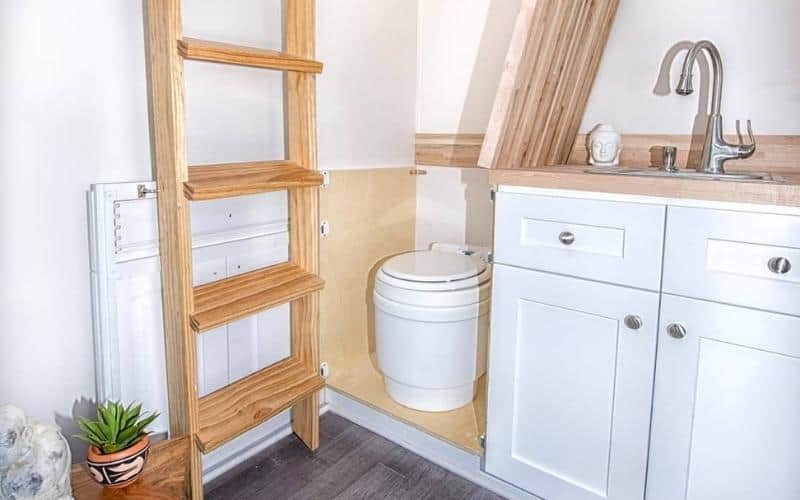
What is a Dry Flush Waterless Toilet and the Benefits of Having One in Your RV
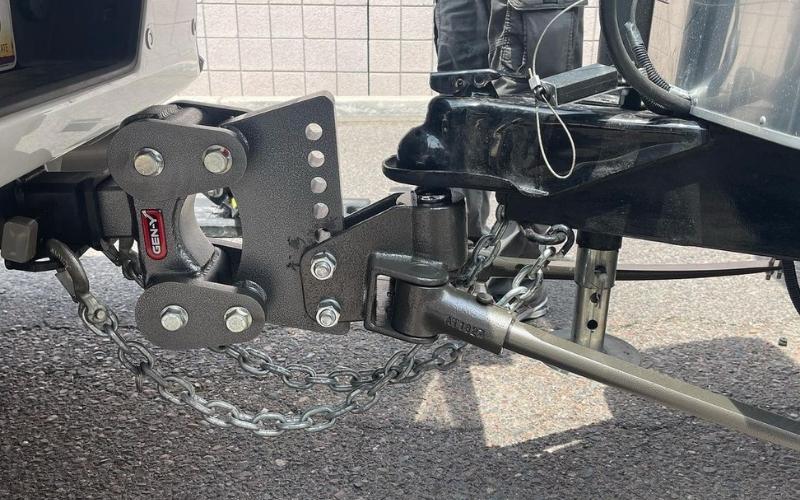
Do You Need A Weight Distribution Hitch When Towing A Travel Trailer?
Start typing and press Enter to search

The Savvy Campers
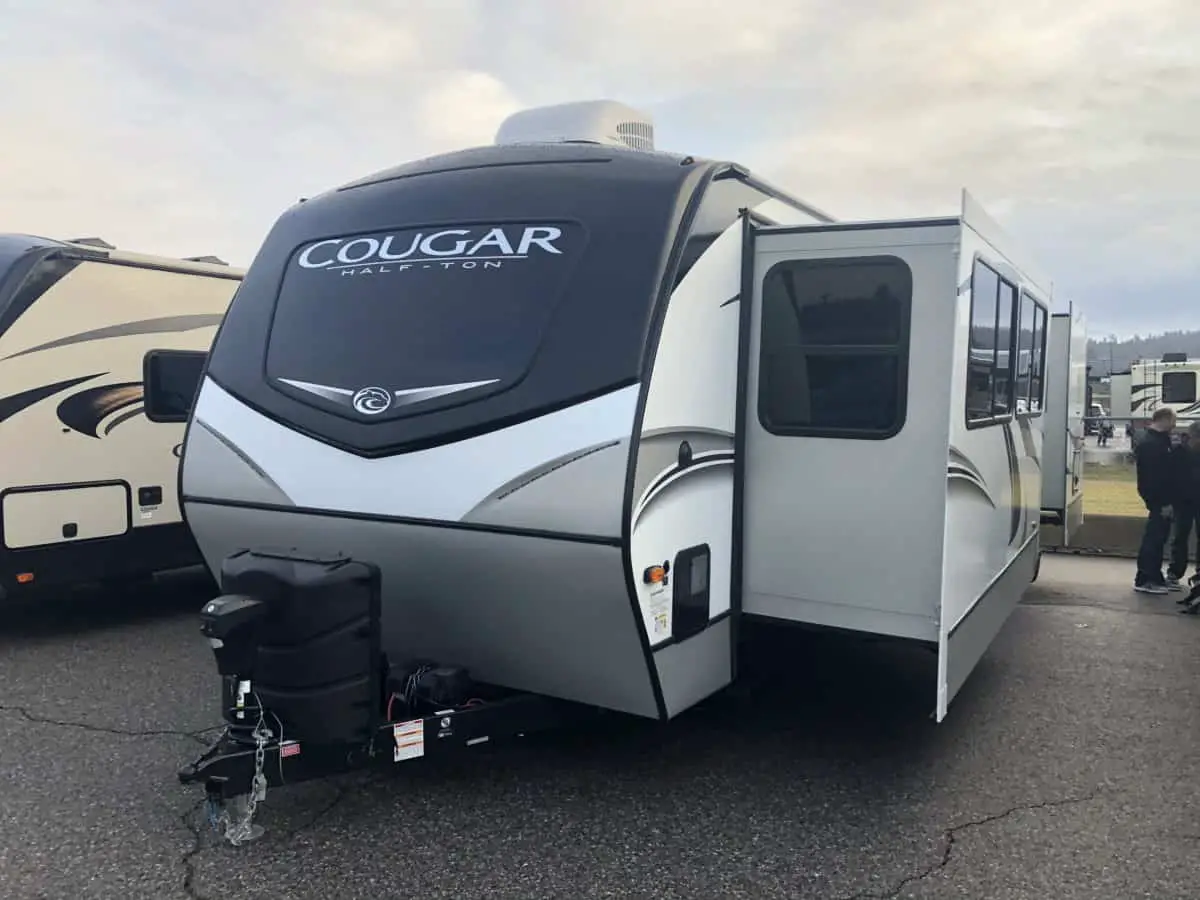
How Much Does it Cost to Own a Travel Trailer?
We lusted over the life of being a travel trailer owner prior to owning one, and still get giddy with the thought of taking it out. It is currently December and I just went to our storage space to check on the RV and instantly got the feeling back of how fun it was to go to Glacier National Park last summer or stay at our favorite small town in November.
As I left, I paid our monthly storage bill and went on my way and started adding up all of the costs in relation to such a good experience and decided to share them here.
How much does it cost to own a travel trailer? The monthly cost to own a travel trailer can range from about $20 per month for registration and insurance if you own it and can park it for free to upwards of $400+ if you are making payments and do not have somewhere to store it on your property.
Typically, a travel trailer will cost a user more than they initially thought when you factor in the additional tow vehicle expenses such as additional wear and tear, gasoline, and upgraded hitches or towing accessories.
If you buy a new camper, your payment would be factored into the costs of ownership as well as any accessories you buy or the dealer installs.
During the course of our ownership, we have purchased several accessories such as a generator, sewer pipe kit, upgraded shower head, bbq, additional kitchen accessories , and many more items just for our trailer.
Thinking of buying a used RV, travel trailer, or camper? This article will guide you how to determine private party RV value and what you should be paying.
It is easy to have your costs of ownership cost you several thousand over the first year you buy your trailer, but you should expect costs to decrease as you obtain the needed accessories.
Lastly, storage is a factor in the cost to own a travel trailer . If you store your trailer on your property it can be free, but storage can range from $20 per month to about $90 per month for outdoor storage and $300+ per month for indoor covered storage.
Despite the costs involved, we have thought of our trailer as an upgrade to our life. Having a trailer allows our family to spend time together in the outdoors away from cell service and civilization. Being able to take that fishing trip and stay at the fishing hot spot and not having to get up at 4AM to drive two hours is a wonderful feeling.
We have met so many interesting people along the way on our travels and would not change our experience or the world.
The Complete Cost Guide to RV Ownership
There can be several types of costs involved with RV ownership, these costs can be detailed as:
- Purchase Costs
- Storage Costs
- Insurance and Registration Costs
- Maintenance and Repairs
- Travel Expenses
- Tow Vehicle Expenses
Upgrades and Other Expenses
Travel trailer purchase costs.
Travel trailers can vary wildly on their costs and typically range from $13,000 up to $55,000+. If you pay cash for your trailer, that is great, and for this example, you can amortize the costs over the years you think you will own the RV or omit the cost completely.
If you finance your RV, this monthly cost would be included in your costs of ownership. For the 5 examples below, we will use a down payment of $5,000 an interest rate of 4% and a loan length of 7 years. We assume tax, title, and license is included in the total cost. Each of these items can vary greatly per situation.
- Total RV Cost: $13,000 = Monthly cost of: $109.35
- Total RV Cost: $25,000 = Monthly cost of: $273.38
- Total RV Cost: $32,000 = Monthly cost of: $369.06
- Total RV Cost: $40,000 = Monthly cost of: $478.41
- Total RV Cost: $55,000 = Monthly cost of: $683.44
The numbers above can shift wildly depending on the RV cost, the amount for down payment, interest rate, as well as loan term. These factors along with the RV price can all be shifted to get a camper within your budget. Learn more about how much the average monthly payment on an RV is.
If you are interested in learning more about financing a RV, Bankrate has a great article on how to get a RV loan.
Buying a used RV can save you loads of money. Here is our article detailing step by step how to value a private party RV.
RV Storage Costs
The cost to store your RV can vary depending on where you are storing it. If you have outdoor storage, you may want to factor in the cost of wheel covers and an RV cover. These two items can cost from $200-500+ depending on the size of your RV.
The monthly storage costs in our area range from $35 per month to $70 per month for up to a 25’ trailer. If you have a longer trailer, prices typically go up to $50-$90 per month. If you buy a brand new motor home or fifth wheel, you may want to look into indoor or covered storage. I found that indoor storage for a 40’ RV was around $250-$300 per month in our area.
Obviously these numbers can vary depending on the supply and demand of storage where you live, or if you or a friend may have a large shop or plot of land where you can park for free.
Camper Insurance and Registration Costs
Adding our travel trailer to our auto insurance policy did not add as much as I would have thought, the total annual premium increased about $187 including the addition to our umbrella policy. This also included roadside assistance and towing for 50+ miles.
Insurance can vary depending on how many items are on your policy, the value of your RV, as well as the coverage you select. If you have a 42’ diesel pusher, I would expect insurance to be a lot larger than what we pay for a 20’ travel trailer.
The costs to register our travel trailer for the first year were $107. This included a $20 one time fee for a new license plate that will not have to be paid the following years.
Travel Trailer Maintenance and Repair Costs
As we purchased our trailer new, we have not had to pay much for maintenance or repairs to date. There are many items on the trailer which need service annually such as wheel bearings, tire pressure, winterization, summarization, roof repair, window reseal, interior repairs from being towed, etc.
When you tow your trailer, it is basically having an earthquake inside every trip. You can imagine what that does to all the little items, seals, and electronics so you cannot expect them to last forever. Luckily, if you are handy, you can make many of these small repairs yourself.
As I like to call myself handy, I completed the first winterization myself. I had to buy a few seal sprays, lubricants, attachments, and RV antifreeze, but the total cost to winterize for the first year was under $50. In the following years, it will only cost about 3 gallons of RV antifreeze or about $9. My local dealer charges $179 for winterization and $99 for summarization. These costs would vary depending on if you have an outdoor shower, or items such as an on board generator.
I plan to save about $50 per month for travel trailer repairs, as I can do many maintenance items or repairs myself. I will let my bank of $50 per month grow as when I have to replace the tires they can cost $500-600 for a set of nice trailer tires.
Roof sealant and small repairs should not cost over $100 per year on a newer trailer. Once your roof starts to get older, you may want to have some money saved for a replacement as roof replacements can cost over $1,000.
RV Travel Expenses
When factoring your travel expenses, where you camp will dictate your costs. When we stay at a local campground , the cost is $15 per night with no hookups. Typically we only stay for 1-2 nights so not having hookups does not make a huge deal.
When we stay in national parks around our area, they cost $23 per night. These typically have no hookups as we stay in the middle of nowhere. At a local state park on a lake near us, we pay $30-35 per night with full hookups. I will tell you full hookups are a dream come true when you get to use them for the first time.
We have paid $107 for a week of camping on Flathead Lake in MT with full hookups, which was a very good deal. Last year, we looked at driving the trailer to the Oregon Coast and wanted to stay at a very nice campground on the beach. Our thoughts were changed when we found out the price was $75 per night. We were able to get a very nice hotel for about $130 per night and figured it was a wash as the gas prices to get over to Oregon would make up the difference.
All in all, a campground can range from free if you are boondocking, to an average of about $30 per night.
Travel Trailer Tow Vehicle Expenses
Don’t forget your tow vehicle costs when factoring your costs of ownership. Your gas bill alone will be the majority of these. We get about 10 mpg when towing down from about 16 with normal driving which is not too bad.
Pro Tip: If you are buying a new vehicle, spring the extra money for the larger gas tank. You will thank me when you fill up less often and do not have to navigate a trailer in tight gas stations.
Your tow vehicle will go through tires faster, wear suspension parts, need more frequent oil changes, as well as need more general care if you are towing frequently. These costs can vary depending on the age and condition of your towing rig.
If you need a weight-distribution hitch or sway control, make sure to include that cost in your costs of ownership. These can range from $250-600 on average all the way up to $1500 for the best of the best.
When you have a trailer sitting at your disposal, you cannot help but upgrade it or buy items for it. Just off the start, you will need some essentials such as:
- Sewer Hose Kit
- Water Hose, filter, and attachments
- Leveling Blocks
- Wheel Chocks
- Surge Protector
- Power Cable and Adapters
Along with the essentials, you will find yourself bitten with the big. Chances are, you will move on to lust over other items such as:
- Solar Setup
- Camping Mat
- Camping Outdoor Furniture
The list goes on and on. The sky is the limit when you think of outfitting your trailer, or just get the basics and enjoy your time in the outdoors. Over time, it is fun to buy small upgrades or items here and there to make your camping just that much better and give you that extra something to look forward to. If these costs scare you, learn how to reduce them or even have them paid for.
Take the time to go through each category above and use these examples to figure what your approximate monthly cost of ownership would be.
Related questions
How much does it cost to store a travel trailer?
Outdoor travel trailer storage can cost from $35-$90 depending on the length of your vehicle and location. Indoor can cost $200-$300 per month also depending on the length and location.
Do I need insurance for a travel trailer?
Yes, having insurance on your travel trailer will not only be a benefit to you, but will be a benefit to others shall something happen when you are on the road. Insurance can benefit you if your trailer is stolen or damaged. Insurance will help others shall your trailer do damage to other vehicles or property. For example, it was involved in an accident or came unhitched.
Do I have to register a travel trailer?
Yes, if you are towing your travel trailer on public roads, you will have to license and register it. If you are parking it at a property using it as a cabin of sort, and will not be moving it, you do not need to license or register the trailer. Typically the costs to license are very small and should be kept up. As always, check with your local DMV to find out the answer that will best suit your needs.
Be the first to be notified about FREE tips, hints, coupon codes, and email-exclusive information. All for FREE!
Related Posts:

Similar Posts
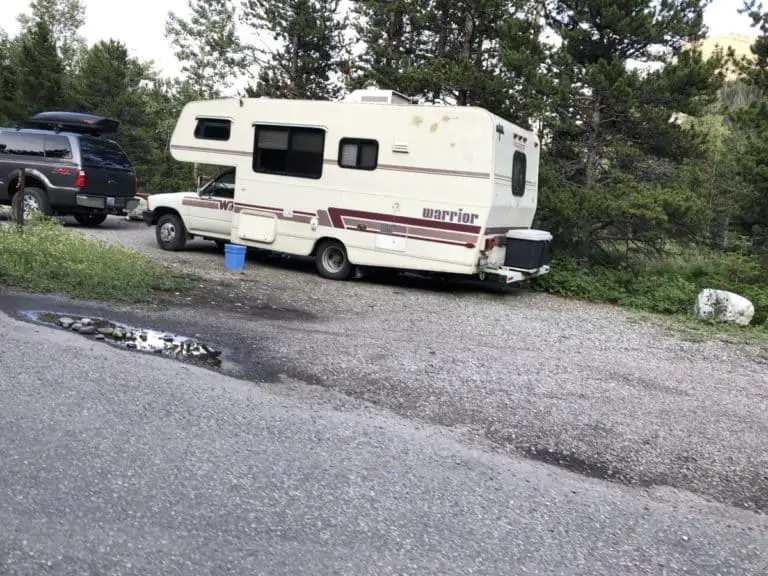
7 Ways to Get Rid of an Old RV or Motorhome
So you’ve decided the time has come to get rid of your old RV or Motorhome. Whether you’ve decided to upgrade to a new model or you simply no longer need your vehicle, you’ll want to consider your options for the best ways to dispose of it. No one wants an unused RV or motorhome…
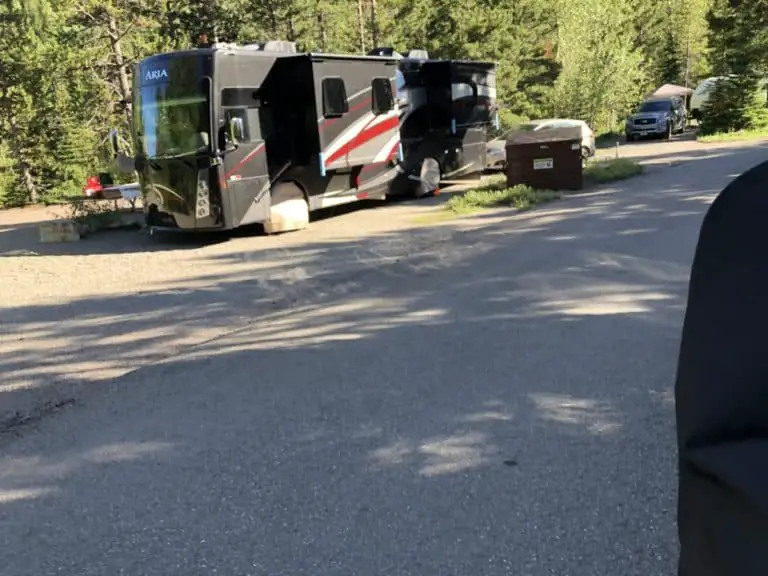
How much can an RV tow? With examples
Knowing your RV’s towing capacity is essential to getting the most out of your vehicle and your outdoor adventure. What and how you tow greatly depends on the type of RV that you own. How much can an RV tow? In general, a Class A RV can tow up to 15,000 pounds, a Class B…
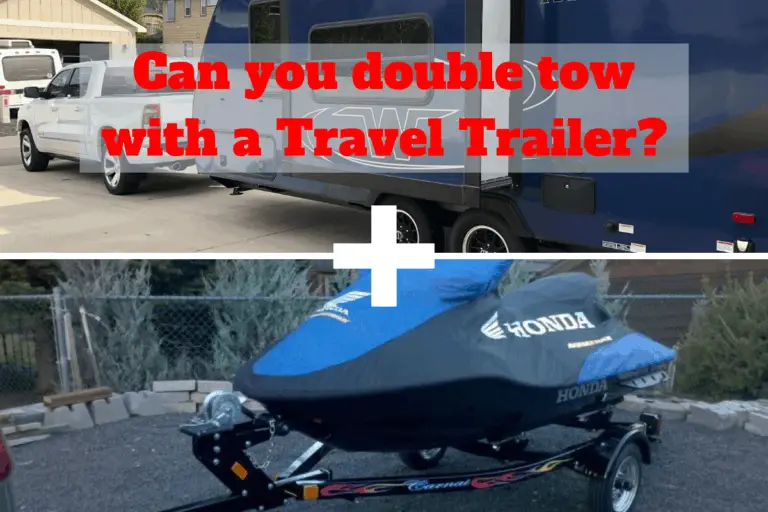
Can you double tow with a Travel Trailer?
Pulling a single travel trailer is typically the way that most owners will use their trailer when traveling. However, there are times when pulling just one accessory behind a vehicle is not going to do for the adventure or camping trip that one has in mind. Many travel trailer owners will want to be able…
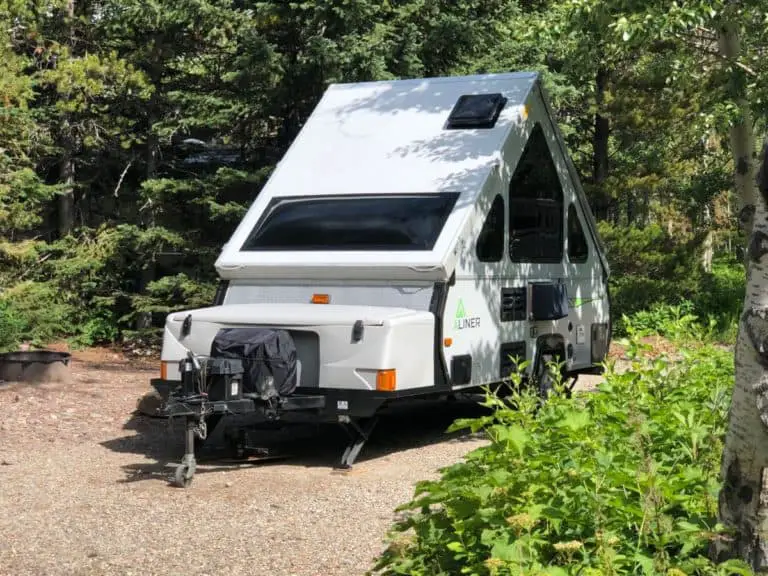
19 Reasons not to buy a Popup Tent Trailer
Tent or Pop Up trailers have their positives and fill a void in the market by providing people a lightweight trailer to tow and provide more amenities than tent camping, but they also come with many negatives. We have compiled all of the reasons not to buy a tent trailer below. Hot in the Summer…
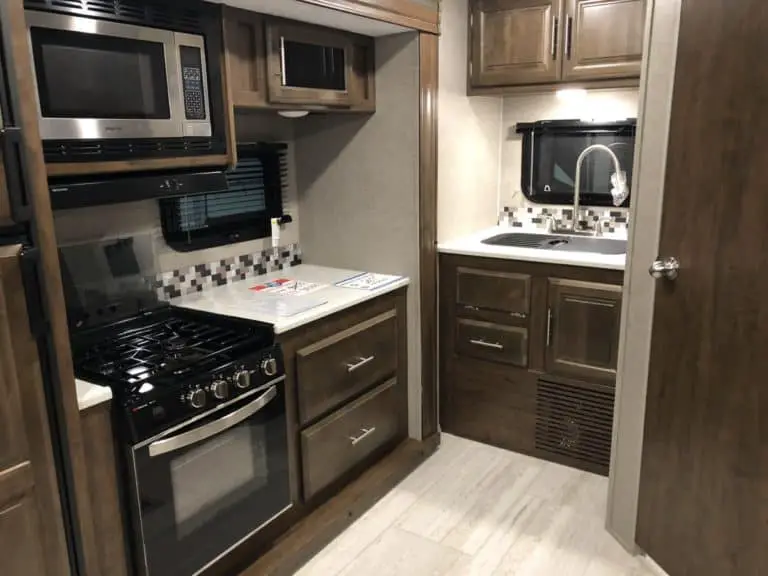
How to Use an RV Oven? Plus Tips for Cooking in an RV Oven
One of the many reasons that so many people are drawn to travel trailers and RV’s as a form of camping is the household amenities that you can have while still enjoying nature right outside your front door. One of the items that many trailers come with is a working oven and RV stove so…
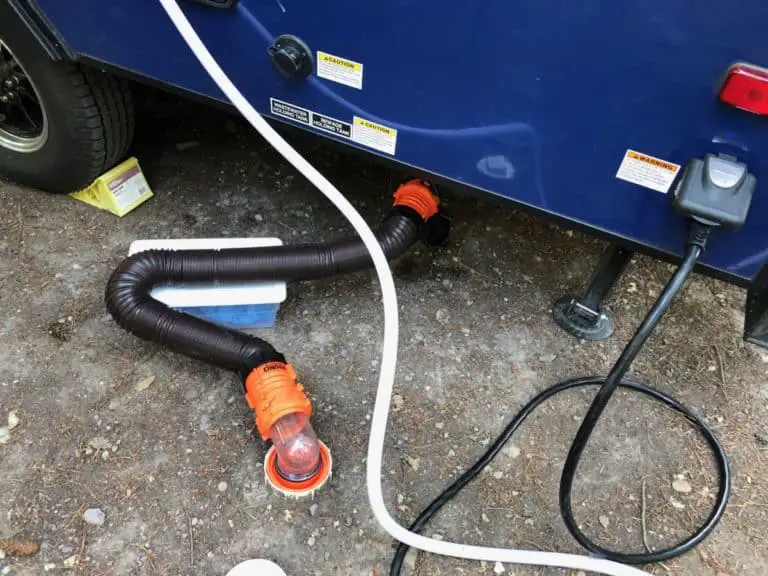
3 Easy Ways to Clean a Black Water Tank
Everything You Need to Know About Your Black Water Tank Travel trailer owners know that this form of camping can bring lots of wonderful experiences and adventures. However, there are parts to owning an RV that can be not so alluring. While it might not be the most glamorous part of owning a trailer, owners…
Join our Newsletter to stay up to date on the latest RV topics and receive our FREE RV Inspection Cheat Sheet Today. Use this tool to inspect new or used campers you are looking at purchasing.
No thanks, I’m not interested!

RV Storage Fees: Are They Worth It?
Last Updated on December 12, 2023 by Jess
If you’re a proud owner of a recreational vehicle (RV), you know the joy and freedom that comes with having your own portable home on wheels.
Whether you enjoy weekend getaways, cross-country road trips, or even full-time RV living, having a reliable and safe place to store your RV when it’s not in use is essential.
However, with the convenience of RV storage comes the cost, and many RV owners often wonder if the fees associated with storing their RV are worth it.
Iets explore the various factors to consider when deciding if RV storage fees are worth it for you.
Table of Contents
Types of RV Storage
Before we dive into the pros and cons of RV storage fees, it’s important to understand the different types of RV storage options available to you. There are three main types of RV storage:
1. Outdoor Storage 2. Covered Storage 3. Indoor Storage
Each type of storage has its own benefits and drawbacks, and the cost associated with each option may vary based on location and amenities.
Outdoor Storage
Outdoor RV storage is the most common and affordable option. It typically involves parking your RV in a designated outdoor storage lot, where it is exposed to the elements. While outdoor storage is the most cost-effective option, it offers the least protection for your RV.
Covered Storage
Covered RV storage provides more protection for your RV than outdoor storage. This option usually involves parking your RV under a structure, such as a carport or awning, that shields it from the sun, rain, and other weather elements.
Covered storage is a good middle-ground option for RV owners who want some protection for their vehicle without paying the higher cost of indoor storage.
Indoor Storage
Indoor RV storage is the most expensive option, but it also provides the highest level of protection for your RV. Indoor storage often involves storing your RV in a fully enclosed garage or warehouse, where it is shielded from the elements and potential theft or vandalism.
The Pros and Cons of RV Storage Fees
Now that you understand the different types of RV storage, let’s explore the pros and cons of paying for RV storage fees.
PRO: Protection from the Elements
One of the main benefits of paying for RV storage is the protection it offers your vehicle from the elements.
Outdoor storage exposes your RV to harsh weather conditions, including sun damage, hail, and snow. Covered and indoor storage options provide varying degrees of protection from these elements, ensuring that your RV remains in good condition for years to come.
The most significant drawback of RV storage fees is the cost. Depending on the type of storage and location, fees can range from a few hundred dollars to a few thousand dollars per year.
This added expense may strain your budget, especially if you’re already paying for other RV-related costs such as maintenance, fuel, and insurance.
PRO: Security
RV storage facilities often provide security features such as gated access, surveillance cameras, and on-site staff to monitor the premises.
This added layer of security can give you peace of mind knowing that your RV is protected from theft and vandalism while in storage.
CON: Accessibility
One potential downside of storing your RV off-site is the limited accessibility. If you enjoy spontaneous trips or frequent use of your RV, having to coordinate with a storage facility to access your vehicle may be inconvenient.
However, some storage facilities offer 24/7 access, so be sure to inquire about accessibility when considering storage options.
PRO: Extended RV Lifespan
Storing your RV properly can help extend its lifespan. By protecting it from the elements and potential damage, you can reduce the wear and tear on your vehicle, ultimately saving on maintenance and repair costs in the long run.
CON: Limited Space
Depending on where you live, finding a suitable RV storage facility with availability may be challenging. If you’re in a densely populated area or high-demand location, you may have to settle for a storage facility that’s farther from home or less convenient.
Frequently Asked Questions about RV Storage Fees
To help you make the best decision for your RV storage needs, here are answers to some frequently asked questions about RV storage fees.
Q: How much does RV storage cost?
A: The cost of RV storage varies depending on the type of storage, location, and amenities. On average, outdoor storage can range from $30 to $100 per month, covered storage can range from $50 to $200 per month, and indoor storage can range from $100 to $500 per month.
Q: Are RV storage fees tax-deductible?
A: In some cases, RV storage fees may be tax-deductible as a business expense if you use your RV for business purposes. However, it’s best to consult with a tax professional to determine if you qualify for this deduction.
Q: Is it worth it to invest in RV storage for winter?
A: Storing your RV properly during the winter months can help protect it from cold temperatures, snow, and ice damage.
If you live in an area with harsh winter weather, investing in RV storage for the winter months may be worth it to preserve the value and condition of your vehicle.
Q: Can I negotiate RV storage fees?
A: Some RV storage facilities may be open to negotiation, especially if you’re willing to commit to a long-term storage contract.
It never hurts to ask if there’s any flexibility in pricing or if there are any current promotions or discounts available.
Q: What should I look for in an RV storage facility?
A: When choosing an RV storage facility, consider factors such as security features, accessibility, proximity to your home, and customer reviews.
It’s also a good idea to visit the facility in person to inspect the storage options and ask any questions you may have.
In conclusion, whether RV storage fees are worth it depends on your individual circumstances, budget, and priorities.
If protecting your investment and ensuring the longevity of your RV is a top priority, then paying for RV storage may be a worthwhile investment.
However, if the cost of storage fees is a concern, there are alternatives such as storing your RV on your property or in a friend or family member’s garage. Ultimately, the decision should consider the trade-offs between cost, convenience, and protection for your RV.
Leave a Comment Cancel Reply
Your email address will not be published. Required fields are marked *
Privacy Overview

Free Full-time RV Budget Spreadsheet
- Latest Posts
As promised…..
Here’s the spreadsheet I promised so you can work on your own budget for full-time RVing. Just plug in your own numbers – the ones that are on the spreadsheet are only there for reference.
I’ve even added a Master Sheet and a Practice Sheet.
Click on the link below to download your copy.
2020 Full-time-RV-Budget-Spreadsheet
I sincerely hope you find the information helpful. I ask that you don’t share the link with anyone – it’s specifically for you. 🙂
Safe travels,

Uncovering the Hidden Costs of Storing Your Travel Trailer: What You Need to Know
1. introduction.
Storing a travel trailer can be a challenge, especially if you don’t have the space to keep it at home. Fortunately, there are plenty of RV storage facilities where you can safely and securely store your trailer. But how much does it cost to store a travel trailer? This article will explore the factors that affect the cost of storing a travel trailer, as well as provide a cost comparison of different types of RV storage facilities.
2. Factors that Affect the Cost of Storing a Travel Trailer
The cost of storing a travel trailer will depend on several factors. The size of the trailer is one factor; larger trailers typically require more space and may cost more to store than smaller trailers. The location of the storage facility is another factor; some areas may have higher rates due to local demand or market conditions. Finally, the type of storage facility you choose will also affect the cost; indoor facilities tend to be more expensive than outdoor facilities.
3. Indoor vs Outdoor Storage for Travel Trailers
When considering RV storage options, you’ll need to decide whether you want indoor or outdoor storage for your travel trailer. Indoor storage offers greater protection from weather and other elements, but it tends to be more expensive than outdoor storage due to its added protection and convenience features. Outdoor storage is usually less expensive than indoor storage, but it does not offer as much protection from weather and other elements.
4. What to Look for in an RV Storage Facility
When choosing an RV storage facility, there are several things you should consider before making your decision. First, check out reviews from other customers who have used the facility in order to get an idea of their experience with them. Also make sure that the facility is secure with proper lighting and surveillance cameras so that your vehicle is safe while stored there. Finally, inquire about any additional services or amenities offered by the facility such as covered parking spots or discounts for long-term stays.
5. Cost Comparison of Different Types of RV Storage Facilities
The cost of storing a travel trailer will vary depending on what type of facility you choose and where it is located in relation to your home or destination spot for vacationing with your travel trailer.. Generally speaking, indoor facilities tend to be more expensive than outdoor facilities due to their added protection features and convenience features such as covered parking spots or discounts for long-term stays.. However, some areas may have higher rates due to local demand or market conditions.. Additionally, some facilities may offer discounts for military personnel or seniors so it’s always worth inquiring about special offers when looking at different options..
6. Additional Fees and Costs to Consider When Storing a Travel Trailer
In addition to monthly rental fees, there are other costs associated with storing a travel trailer that you should take into consideration when budgeting for this expense.. These include setup fees (if applicable), insurance costs (if required by your state), taxes (if applicable), fuel costs (if applicable), maintenance costs (if applicable) and security deposits (if required). Additionally, some facilities may charge extra fees if they provide additional services such as cleaning or repair work on your vehicle while it’s in their care.. It’s important that you understand all associated costs prior to signing any contracts with an RV storage facility so that you can accurately budget for these expenses..
7 Tips for Finding the Best Value in RV Storage Facilities
Finding great value when storing your travel trailer doesn’t have to be difficult! Here are seven tips for finding the best value in RV storage:
1) Research different types of facilities: Compare prices between indoor and outdoor options as well as any special offers available at each location 2) Check reviews: Read customer reviews online before committing so that you know what others think about their experience 3) Inquire about discounts: Ask if there are any military discounts or senior discounts available at certain locations 4) Ask about setup fees: Find out if there are any setup fees associated with renting space at certain locations 5) Inquire about insurance requirements: Some states require insurance coverage when storing an RV so make sure this is taken care of before signing any contracts 6) Consider fuel costs: If using an onsite fuel station make sure that this additional expense is factored into your budget 7) Ask about maintenance services: Some locations offer additional services such as cleaning or repair work which could save money in the long run
8 Conclusion
Storing a travel trailer can be costly but understanding all associated expenses before committing can help ensure that you get great value from whatever option you choose! From size considerations and location factors affecting pricing through additional fees like setup fees and taxes – there’s plenty to consider when budgeting for this expense but doing research ahead of time can help ensure that you get great value from whichever option works best for your needs!
9 Resources
https://www.rvshare.com/blog/how-much-does-it-cost-to-store-an-rv/ https://www.goodsamrvparksandcampgroundsguidebookreviewsbloggerhubspotwordpressweeblyzillowtruliahomeawayairbnbbookingcomexpediahotelscombudgettraveltripadvisorcampsitephotosyelpgooglemybusiness/2020/10/04/how-much-does-it-cost-to-store-an-rv/ https://www.wikihowlife/RentRVStorageFacility https://www.-outdoorsy.-com/blog/-how–to–find–the–best–value–in–rv–storage
Related posts:
- Uncovering the Secret to Storing Your Travel Trailer: Does it Really Need to be Level?
- Preparing Your 2019 Forest River Travel Trailer for the Winter: Expert Tips to Keep You Warm and Cozy!
- Parking a Travel Trailer in Your Driveway? Here’s What You Need to Know!
- Uncovering the Secrets of Successful Used Travel Trailer Shopping: What to Look For Before You Buy
Leave a Comment Cancel reply
Save my name, email, and website in this browser for the next time I comment.

What is the Total Cost of Owning an RV?
Written by Jordan Stokes
Table of Contents
Introduction
Thinking about owning a rig of your own? RV ownership includes costs beyond the purchase of your travel trailer or home on wheels. Lucky for you, we’ve rounded up the top 7 expenses of owning an RV so you can choose a motorhome or camper that fits your budget! From vehicles to insurance and even storage options, we have all of your RV expenses covered. RV’s are great for camping, long-distance trips, and more. Whether you’re diving head first into full-time RV living or just looking for a seasonal camper for vacationing, it’s important to know what you’re going to be paying.
Top 7 Expenses of RV Ownership
There are 7 expenses you need to consider once you decide you’re ready to hit the open road. Like any big purchase, RV ownership is an investment, and there are added costs, especially when it comes to owning one of these 2,000-10,000+ lb rigs. Here are the 7 expenses you need to plan for if you want to own an RV:
- The cost to buy an RV
- Maintenance
- RV Parks and Campsites

Looking to rent an RV? Get $40 off of your first rental with Outdoorsy .
1. how much does an rv cost.

- Class As are preferred by full-time RVers, and at up to 45 feet long, they are the largest and most expensive RV you will find. Class A homes are on average around $200,000.
- Class Bs are more like vans and are essentially just basic travel campers. Class B homes average around $120,000.
- Class Cs are mid-sized RVs that range from 20 to about 35 feet and are typically built on top of a van or large truck. Class C homes average around $100,000.
The thing is, the sky’s the limit when it comes to spending on an RV. So the question is: how much are you willing to spend? On average, new RVs go for about $55K MSRP, while used RVs go for about $35K MSRP. Of course, the price varies dramatically based on the type and brand of RV you purchase. Read our New vs. Used RV buying guide to ensure you make a smart, informed buying decision.
2. How much does RV Insurance Cost?
The cost of RV insurance is typically more reasonable than auto insurance because most people tend to drive RVs less than they do their cars. Regardless, you should always do research before you purchase insurance if you plan on buying an RV of your own to make sure you’re covered where you need it. RV insurance averages $500-$1,000 annually for a motorhome and about $250 if you’re going the trailer route.
Pro Tip: Your age and driving record are factors that also play a role in determining your insurance cost. Remember to always shop around for insurance rates and premium costs to find the right price for you!
Looking for an insurance quote? Get a quote with Progressive , a leader in powersports and RV insurance. *This is a sponsored placement by Progressive Insurance.
3. RV Gas Cost

- Class As average about 8-10 mpg and hold 100-150 gallons.
- Class B Camper Vans are similar to standard family vans, and typically get 10-25 mpg depending on make and model, engine size, vehicle weight, city/highway miles and speed driven. Class Bs hold around 25 gallons.
- Class C motorhomes average 10 mpg and hold 25-55 gallons.
What type of gas does an RV use? There are gas and diesel motorhomes, so the choice is yours! Diesel motorhomes are preferred by long distance travelers because it is much more fuel efficient and has a greater energy value than regular gasoline does. No matter what you choose, tools like Automotive.com can help you find the cheapest gas prices near you.
4. RV Maintenance Cost

- Tires – Start at about $300 each
- Toilet – About $150
- Floor Repair – Depending on materials, can cost anywhere from $2 – $15 a square foot.
- Roof Repair – $250+
- Windshield Replacement – $1,000 – $5,000
- Water Damage – This varies depending on what is damaged, but can start at around $800 and go from there.
You should set aside about $100 a month for maintenance costs.
5. RV Parks and Campsites Cost

Pro Tips: Regardless of what you pay, any decent RV park will have hookups, bathrooms, and maybe a playground or a few things for the kids to do. Some nicer resorts may even have a pool and a few other fun games or activities! At pricier parks, you might be able to find spas, golf courses, and more. Check out the Top 10 Best RV Parks in America for ideas.

6. RV Utilities Cost

Pro Tip: The good thing is, you can actually pay nothing for services if you are willing to move often from place to place because when you stay in RV parks and campgrounds, your fee covers all of your hookups and amenities there.
7. RV Storage Cost
RV storage is definitely something you don’t want to skimp out on, especially if you experience a snowy winter. The good news is, you can rent an indoor storage unit to ensure your RV will stay protected during months of freezing temperatures, snow, and high winds. Storage units (both indoor and outdoor) can be anywhere from $30-$100+ a month. Read our winter storage checklist to ensure you’re prepared when the temperature drops. If you’re looking for something cheaper, you can also apply a breathable cover or tarp to prevent moisture from getting in, as well as UV radiation from damaging paint etc. on your new RV. Waterproof covers can cost anywhere from $100-$300+.

GoRollick Buying Experience
When you’re ready to find your perfect RV, be sure to check us out at gorollick.com . You can:
- See nationwide inventory, specs, and incentive information
- Get an upfront, transparent price on your desired vehicle
- Receive special offers on both the vehicle, as well as additional accessories
- Shop at one of our Certified Dealers who are committed to providing an exceptional buying experience
You may also like

How To Save (And Make) Money With Your Own RV

Top 10 Ways to Get Outdoors in 2023
Leave a comment cancel reply.
Your comment
Get access to exclusive deals, updates on manufacturer rebates, and product reviews and test drives
- ATM locations
- ATM locator
Estás ingresando al nuevo sitio web de U.S. Bank en español.
Costs of owning an rv, what expenses should i plan for when buying an rv, before you apply....
Your U.S. Bank pre-approved financing amount is good for 60 days, only at our participating dealers . Find one now using our dealer locator – or start your application right away and search for participating dealers later.
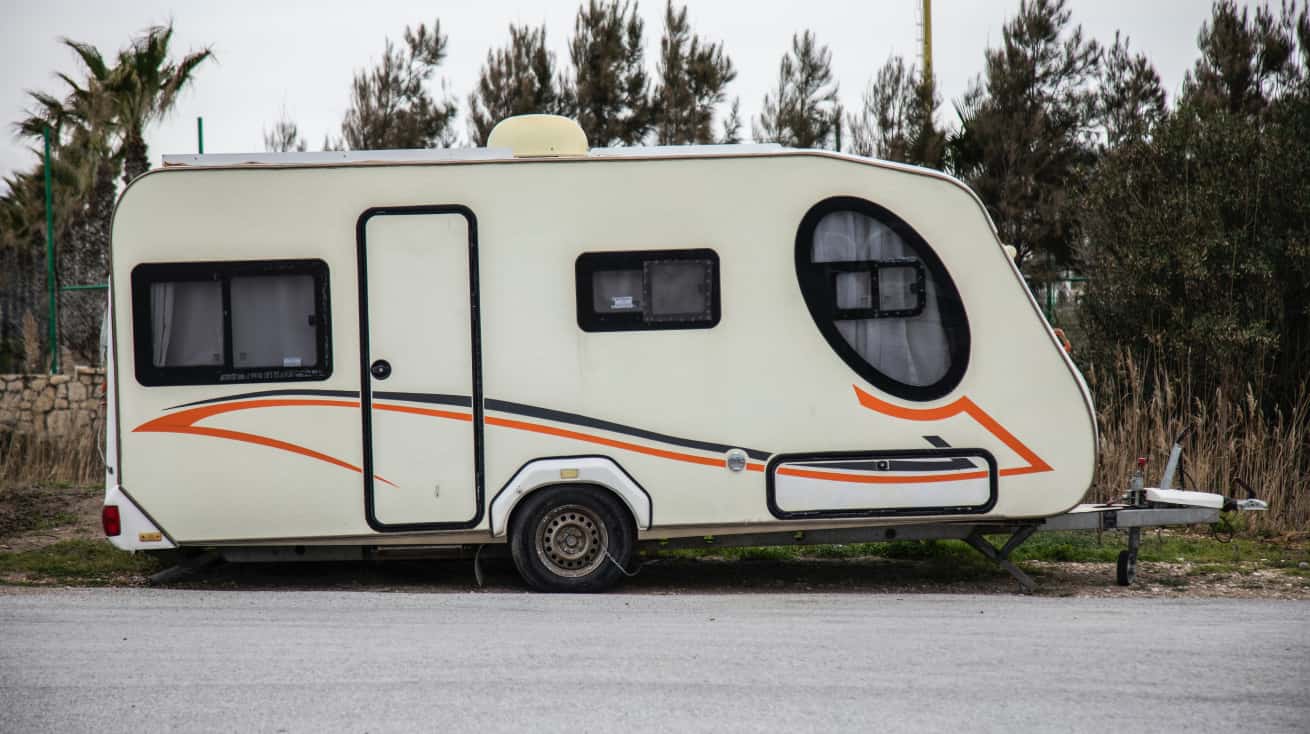
Buying an RV is a big investment. Be sure you consider the long-term costs of RV ownership when budgeting for your purchase.
Budgeting for your RV purchase
Before signing on the dotted line for a new or used RV, it’s a good idea to carefully plan for the expenses that come with RV ownership. In this guide, we’ll try to help you build a budget you can rely on so you can make a smart purchase decision.
Upfront costs and financing
Down payment.
Just as when you buy a new car or truck, an RV dealership will typically require a down payment at signing when you purchase an RV. The amount of your down payment will vary by dealership and may be discounted during sales events, but in most cases, you can expect it to be in the thousands of dollars.
Monthly payments
Unless you plan to pay for your RV in full using cash on hand – an option available to few – you’ll need to apply for an RV loan and set up monthly payments, just like with a car. Terms for RV loans are usually longer than for car loans, so while your payments may be more affordable than you expect, you’ll be making those payments over a period of many years.
Want to get a rough idea how much you might pay per month, and for how long?
Don’t overlook the towing vehicle.
Unless you buy a self-propelled Class A, Class B or Class C motorhome, you’ll also need a vehicle capable of towing your RV trailer when it’s fully loaded with gear and passengers. In most cases, this will be a one-ton or three-quarter-ton pickup truck, although a lightweight RV trailer (such as a small pop-up camper) may be towable by an SUV or even a large sedan. If you don’t already own a suitable towing vehicle, you shouldn’t overlook this cost in your budgeting.
Registration and licensing
All RVs, whether towed or self-propelled, must be registered with your state just like a car or truck. As with cars, the cost of annual registration for your RV goes down as the RV ages. This means that a new RV will cost more to register than a similar used RV. Depending on the type and age of your RV, registration costs may amount to as much as several hundred dollars, so don’t overlook them in your planning.
Do I need a special license to drive an RV?
Unless you buy a very large motorhome (over 26,000 pounds, or 13 tons), it’s unlikely that a special license to drive your RV is required. State requirements differ and are subject to change, however, so it’s a good idea to consult your local DMV website for specific information about licensing and registration.
RV insurance
RV insurance is required for any self-propelled motorhome, just as for any other motor vehicle. For any type of RV (including trailers), many lenders may require you to fully insure the RV before approving financing. Premiums can vary widely based the type of RV and where it’s registered, as well as factors like your driving record, claims history and whether this is your first RV. The good news is that if you only use your RV for a few months out of the year, you’ll pay less for insurance than you would if you lived in it full time.
Insurance on a towing vehicle typically extends to what it tows, so generally speaking, you needn’t buy separate insurance for an RV trailer. But if you only carry liability insurance on your towing vehicle, you may wish to consider full damage coverage on your RV to protect your investment.
Facility fees
When you’re on the road with your RV, you’ll need a place to camp for the night (or longer if you plan an extended stay in a particular locale). In most cases, this will be an RV park.
The most affordable RV parks and RV-friendly campsites, including those in most national parks across the U.S., usually range in price from about $25 to $60 a night (though some fall outside this range on either side). These sites typically offer few amenities and no hookups for water, sewage and electricity.
For around $50 to $80 a night, you’ll find RV parks with more attractions and amenities. These might include full-service hookups, designated dog-park areas, RV wash stations, playgrounds and local convenience stores so you can stock up on the basics. Proximity to recreational areas like lakes and hiking grounds, as well as the availability of planned activities like Jeep tours of the surrounding terrain, may also increase the price.
On the high end, luxury RV parks are available that offer a host of “civilized” amenities such as lounge areas, tennis courts, fitness centers, spas and even golf courses. If you want to pamper yourself, these sites will cost you anywhere from about $80 to $150 a night or more. You’ll typically find these luxury parks at scenic locations where sweeping panoramic views add to the experience.
If you’re planning to stay awhile, many RV parks offer more affordable weekly or monthly rates.
No two ways about it: You’ll spend a lot on fuel for your RV, especially if you drive it frequently over long distances. Motorhomes are not known for their fuel efficiency, and hauling a fully loaded trailer will significantly reduce the fuel economy of your pickup truck (which probably isn’t great in the first place).
Gas vs. diesel
Certain motorhomes (typically Class As) are offered with either a diesel or gasoline engine. Diesel engines cost more to buy and service. However, they also have fewer moving parts, so they typically require less maintenance and fewer repairs – and they typically last longer than gasoline engines.
Diesel fuel continues to be more expensive per gallon than gasoline (even premium gas, which some newer motorhomes require). But because of diesel’s greater efficiency, you may get as much as twice as many miles out of each gallon.
Maintenance and repairs
Just like any other vehicle, an RV needs regular maintenance to perform its best and deliver years of trouble-free operation. Many of the scheduled engine services for self-propelled motorhomes are the same as you’ll encounter with a car or truck: regular oil changes, brake servicing, fuel, air and oil filters, lube for moving engine parts, replacement of aging fuel and fluid lines, etc. The RV’s battery and electrical system (including the generator) should also be checked regularly. And don’t neglect your RV’s tires – which are larger and more expensive than the ones on your car or truck.
Since it’s literally a house on wheels, an RV comes with a host of additional maintenance requirements, many of which parallel those of a conventional home. Roof seals must be inspected regularly and repaired promptly to avoid costly water damage. Interior plumbing needs to be checked and repaired when necessary as well. Water tanks and sewage systems require regular flushing and cleaning to prevent the buildup of bacteria and odors. Water heaters require maintenance. Slideouts need to be properly lubricated and their seals regularly inspected.
As with a car or truck, it goes without saying that as an RV owner, you should be prepared for the unexpected. When you think about it, your RV is essentially a house that’s exposed to hurricane-force winds and earthquake-like vibrations when you drive. Necessary repairs can come up at any time, and you’ll need to be able to pay for them promptly or risk sidelining your RV during prime season.
Supplies and accessories
You’ll want to carefully consider the additional equipment you’ll need to complete your RV experience.
Household items
In the excitement of purchasing your RV and dreaming about where you’ll go, it’s easy to overlook all the various and sundry “household” items you’ll need. If your RV has a kitchen area, you’ll need to stock it with cooking utensils, pots, pans and the like. Bathrooms will need basic items like towels, toiletries and RV-friendly biodegradable toilet paper. Be sure to take a thorough inventory of things you’ll need on an everyday basis and plan for the cost.
Personal transportation
To make errands and exploring easier when you’re parked at a campsite or RV park, it’s worth considering whether you’ll want to bring one or more smaller vehicles along. Chances are, you won’t want to fire up that big Class A motorhome for every little trip (although towing a car behind the RV may solve your problem). If you have a trailer, simply disconnecting it so you can drive the towing vehicle by itself may suffice. But for larger traveling groups, having a couple of bikes or motorcycles available so individuals can explore on their own may be an attractive option.
Last but certainly not least, unless you plan to live in your RV year-round, you’ll need a place to store it when you’re not using it. Your RV represents a substantial investment and helping to retain its value is in your best interest, so choosing the proper storage is critical. Pricing can vary considerably based on what part of the country you live in and the location of the storage facility, so it pays to shop around. There are several types of RV storage available, depending on how much you’re comfortable spending.
Home storage
The most cost-effective option is to store your RV in your yard or large garage. Unfortunately, most people don’t have the space for this, and furthermore, many residential neighborhoods have regulations that prohibit storing large vehicles (including RVs) on your property. Unless you have a heated garage where it will be well protected from the elements, you’ll also need to prepare your RV to ensure it will be ready for action when you want it. This includes cleaning the interior and appliances thoroughly to remove any food matter that might rot or attract pests, emptying and treating all water tanks and lines, adding fuel stabilizer to the gas tank and removing the battery.
Open-air outdoor storage
The most inexpensive place to store your RV is outdoors. Outdoor RV storage typically involves parking your RV in a designated open-air lot with other RVs. Depending on the location, the lot may be fenced and locked, but security is likely to be minimal. You could run the risk of theft or vandalism, especially if you leave your RV for lengthy periods. Since your RV will be exposed to the elements, you’ll need the same preparation as with home storage to ensure it’s well protected.
Covered outdoor storage
Similar to open-air storage, this option offers moderate additional protection from the elements via a roof or canopy. Your RV’s roof and exterior will be better protected from rain, snow, hail and sun damage, but the protection may not extend to all sides of the vehicle. Your RV will still be vulnerable to wind and extreme temperatures and will need to be prepared as with any other non-climate-controlled storage option. Lastly, the same potential security risks apply as with open-air storage.
Indoor storage
Unsurprisingly, this is the most expensive long-term storage option for your RV. In return for the added expense, you’ll get both superior protection from the elements and the peace of mind that comes with enhanced security for your investment. Some self-storage facilities offer designated storage areas for RVs and 24-hour security. You can also seek out a specialized, climate-controlled RV storage facility that offers mechanical, maintenance, cleaning and detailing services. Having these services performed in storage is a convenient way to ensure your RV is ready for adventure when you are.
RV buying tips
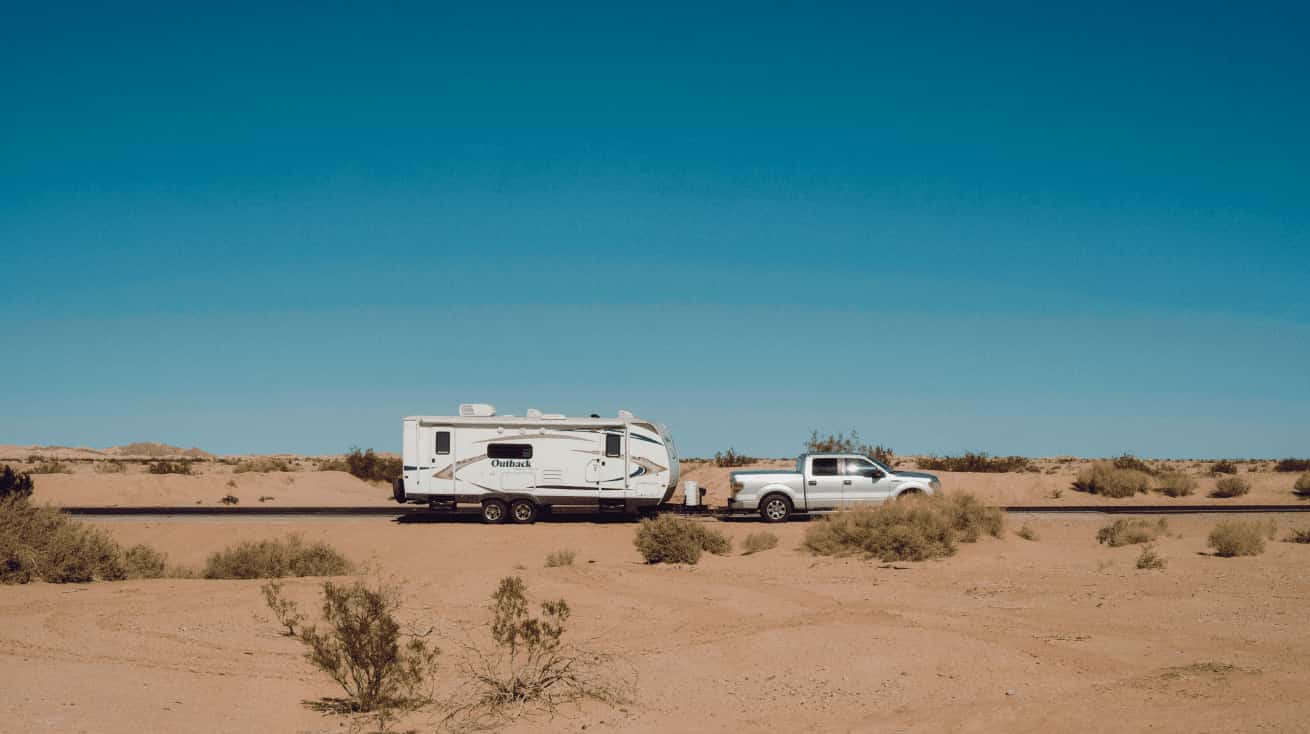
Choosing the right RV
Learn about different kinds of RVs and find the one that’s right for you.
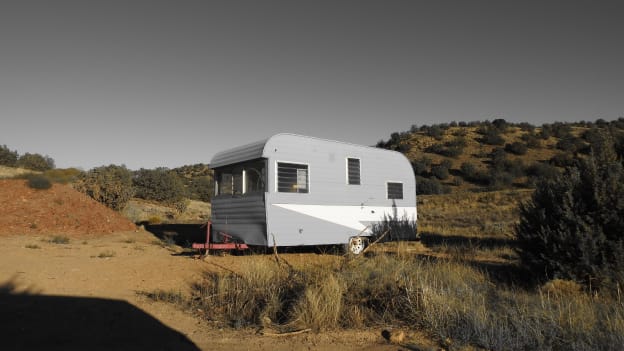
Should you buy a new or used RV?
When buying an RV, there are good reasons to consider both new and used. Let us help you decide.
Explore your options
Related resources.

Ready to start shopping?
Now that you have a handle on the costs associated with owning an RV, it’s time to find the right RV for you. Browse our online RV marketplace for new and used RVs available from participating dealers in your area.
Get started
U.S. Bank assists its customers by working with dealers across the nation. Financing pre-approval is only valid at a dealer with which U.S. Bank works. U.S. Bank is not affiliated with these dealers and makes no representations or warranties regarding the dealers, their inventory, related products or services. All vehicle and related product information included on this site is provided by the dealer, who is solely responsible for the content, representations about itself and the vehicle, including pricing, services and promotional statements. U.S. Bank does not endorse third-party products, services or other vehicle content. Any questions about the vehicle, pricing or related products should be directed to the dealer. The dealer will work with you to finalize financing terms.
The dealer may request your permission to obtain information from one or more credit reporting agencies. The dealer will ask for your photo identification (driver’s license) and/or other identifying documents. U.S. Bank reserves the right to withdraw an approval if your identity cannot be verified or if there have been changes in your credit status as of the date of sale.
Offers are subject to credit approval. Rates are subject to change. Additional restrictions may apply. Member FDIC.
- RV Ownership
The Cost of Owning an RV in 2023
You’ve dreamt of hitting the open road in a new RV. Thoughts of visiting national parks and meeting fellow RVers, as you move from one campground to the next, replay in your mind.
You’re ready to embrace the freedom of an RV lifestyle.
But…there’s a voice in the back of your head that warns you it’s not all picture-perfect Instagram posts.
That pessimistic voice might whisper, “You can’t afford to own an RV.” “Imagine how much it costs to fix a specialized vehicle like that. Just think about how much it must cost to park your RV or store your RV when you’re not using it!”
“Go ahead, imagine all the money you’re going to spend on this ‘home away from home.’”
True, it’s not all butterflies and roses. But it’s not all thorns, either.
If you prepare yourself ahead of time for the costs of RV ownership, you’ll be able to budget your way to the freedom that RVing brings.
What exactly is the cost of owning an RV in 2023? That’s the question!
This comprehensive guide to the cost of owning an RV walks you through purchasing, insuring, maintaining, and storing your RV. Knowing these upfront costs will help you make an informed decision about buying and storing your RV.
How Much Do RVs Cost?
The first step of RV ownership is buying an RV. The cost of buying an RV depends on the type of motorhome you choose: Class A, Class B, and Class C.
Each class offers unique features and benefits for different types of users.
So before you go looking, think about what you need in an RV.
- Is it a “home away from home” or a base camp?
- Is it for your family or just you and your partner?
- Do you cook when you go camping?
- Do you need storage for mountain bikes or ATVs?
- What kind of budget do you have?
Motorhomes range from $30K to 1.5M . While the least expensive RVs tend to be Class B, there’s a lot of overlap when it comes to pricing.
Class A motorhomes are those fancy-looking bus-shaped RVs that you see parked at the campgrounds. They cost from $50K to $1.5M , depending on the model and features.
Class B motorhomes are more compact and affordable. You’ve seen them on those trendy #vanlife posts. Only they’re usually called “camper vans” instead of a class B motorhome.
A new Class B motorhome can cost anywhere from approximately $60K to over $300K.
Class C motorhomes provide a middle ground with a cab like a traditional van and the wider interior of a class A RV.
The cost of a Class C motorhome can range from $30,000 for a used model to over $400,000 for a new luxury model.
How Neighbor is changing RV storage
Transparent monthly savings.
Renters save 30-50% on RV storage, on average. No rate hikes.
Keep your RV nearby
25,000 locations means that your RV is always close by.
Storage made simple
Don't settle for stone age tech and long contracts. Neighbor makes it easy.
How much is RV Insurance?
Now that you’ve bought the right RV for you, it’s time to protect it.
Just like any other vehicle, you need RV insurance for financial protection. The cost of RV insurance depends on the value of the RV, your driving record, and any additional coverage you choose to acquire from an insurance company — like roadside assistance.
What Influences Insurance Companies’ RV Rates?
The class of RV, how often you use it, how much it costs, and where you store the RV all influence your RV insurance rates.
RVs that are used more frequently have higher insurance rates because you’re more likely to have an accident. Also, where you store your RV affects insurance based on crime rates and weather.
What’s the Average Annual Premium?
The average annual insurance premium for an RV varies by class .
- Class A: $1,000-$1,300
- Class B: Requires a custom quote since they vary widely in make and model.
- Class C: $800-$1,000
The national average range is between $502 to $848, depending on usage and coverage.
Understand these average premiums so you can properly budget for your RV insurance cost.
Are There Hidden Operating Costs of RV Ownership?
In the honeymoon phase of RV ownership, it’s easy to overlook hidden costs. Rest assured, the operating costs of an RV, however, aren’t that different from any other motor vehicle.
Your RV needs gas to run and regular auto maintenance.
Fuel costs for an RV depend on the vehicle’s mileage, the type of fuel, and the ever-changing price of fuel.
Gas mileage varies by RV class and can significantly impact your fuel expenses. Here are some quick averages for you:
- Class A motorhome: 8 to 14 mpg
- Class B motorhome: 10 to 24 mpg
- Class C motorhome: 15 to 20 mpg.
Knowing your fuel tank’s size helps you budget out how much gas you need for an upcoming trip. Here are the typical gas tank sizes by class.
- Class A motorhome: 100-gallon tank
- Class B motorhome: 25-gallon tank
- Class C motorhome: 50-gallon tank.
The only additional cost that you might consider “hidden” is that tires may need replacing more often than your typical vehicle.
What’s the cost of RV Maintenance and Repair?
And now we’ve come to the point that your pessimistic brain brought up: Is an RV just another money pit?
That’s up to you.
Yes, you will have to deal with repairs. But if stay up to date on routine maintenance, those repairs will be small. Regular RV maintenance includes…
- Regular oil changes to keep the engine running smoothly.
- Administering a new pest control treatment when you move
- Properly inspecting all the seals
- Setting your AC at a reasonable temperature
- Buying the expensive RV toilet paper to avoid unpleasant sewage problems
- Storing it in a covered area
- And properly weatherizing your RV when you’re not using it.
Simple RV maintenance will cost you about $1000/year . Luckily, those maintenance costs are an investment toward your RV’s overall well-being, not to mention, a defense against bigger – more costly – problems like mold, grubs, and leaks.
But even with prevention, things break.
The good news is that common RV repairs (sealant leaks, brake and bearing repairs, tire replacement, and addressing plumbing and electrical issues) tend to be less than $1000/repair .
Save up to $1,200/year on RV storage & parking
How much does it cost to store my rv.
Some people have enough space to store their RV in their yard. But there are a lot of reasons why that may not be possible for you.
HOAs tend to have restrictions on parking an RV on your property. County zoning laws can also affect it.
So you need to find a place to store it, and that cost depends on the local storage facilities near you and what kind of amenities they offer.
Here’s what to consider when you’re looking for a place to store your RV :
- Is the facility an open field lot with easy accessibility? It’s just a place to park it, and that’s all you need.
Rent: $50/month .
- Is it covered storage with security? This is a good middle-of-the-road option that keeps the weather from roughing up your RV.
Rent: $50-$300/month (depending on security and area)
- Is it a fully enclosed, climate-controlled facility with restricted access? This is the best option to protect your investment from detrimental weather conditions. They also have excellent security and personalized accessibility.
Rent: $500+/month
Peer-to-peer marketplaces like Neighbor.com help RV owners save on RV storage costs. By renting indoor RV storage units or covered/uncovered RV storage spaces through private, you can successfully curb costs.
Wherever you decide to store your RV, make sure that it’s covered. Covering your RV protects it from the sun. Parking it under a shelter is best.
How Much Are Campground Fees and Amenities?
You’re finally hitting the road for your first road trip in the RV. So now you get to discover travel expenses .
And does living in an RV on the road actually save you money?
The main travel expense you’ll have is campground fees. Depending on the campground, certain spots may have different amenities that affect your fees.
How Much Are Campground Fees?
Campgrounds determine their fees based on season, location, and the type and size of space you need.
Larger Class A RVs require long, paved spaces to park, while the more rugged Class B RVs can be parked just about anywhere.
You’ll find that most locations have a busy season and an off-season. The off-season in Washington is winter, while the off-season in Florida is summer.
Becoming familiar with the off-seasons can save you some money.
Does RVing Save You Money on Travel Expenses?
It absolutely can. For one thing, if you’re staying at a hotel, cabin rental, or Airbnb, you’re probably spending more time and gas traveling to and from your activities.
But primarily, you spend more on your stay in a hotel, cabin, or Airbnb – which are usually more than $100/night.
Campground rates for RVs, however, are usually less than $100/night, and some are as low as $17/night.
Amenities included in the campground fee usually include electric hookups, dump sites, and potable water. Other amenities like ice and firewood may be available at an additional fee.
Taxes, Title, and Registration Fees
Yep, you’re not going to escape taxes. In addition to the purchase price, insurance, and operating costs, the cost of owning an RV involves taxes, title, and registration fees. These fees vary from state to state and county to county, so make sure you understand your state and county tax requirements.
The state requires title and lien fees as well. They range from $7 to $25, but again it depends on where you live. So make sure you understand your state’s requirements.
In Summary, How Do You Know if RV Ownership Is Right for You?
RV ownership isn’t for everyone. After examining the upfront costs, you’ll have to choose for yourself if it’s worth it to you.
Yes, there are some downsides to RVs, but here are some parting points to help you decide if living RV ownership is for you…
- You value simplicity.
- You crave flexibility.
- You long for the freedom to travel.
- You see the bumps in the road as a part of the journey.
If that sounds like you, then an RV is totally worth it.
Frequently Asked Questions
Is it cost-effective to own an rv.
RV ownership is a cost-effective option compared to traditional home ownership because you’ll have lower payments and fewer bills. And if living an uncluttered life is your thing, then you’ll enjoy the sheer lack of stuff that comes with RV living.
What is the yearly cost of owning an RV?
On average, including the storage costs, payments, insurance, and a couple of road trips a year, the yearly cost of owning an RV is between $16,000 and $42,000, depending on whether you are buying pre-owned or brand new, plus between $1,000 and $2,000 in annual maintenance.
Is it cheaper to live in an RV or a house?
Living in an RV is less expensive than living in a house. You don’t have a mortgage, utilities, or homeowner’s insurance to deal with. And your rent is less than an apartment in most cases.
Is it financially smart to live in an RV?
This completely depends on your situation. Living in an RV can help you save money to pay off debt or save money for a down payment or travel.
But there are risks involved. If you live on the East Coast, there’s always a threat of hurricanes and other bad weather that could damage your RV. So make sure you examine all your options and choose the best living situation for you and your family.

Related Posts
Buying an rv in 2023: everything you need to know, comparing class a vs. class c motorhomes – which is right for you, how much does it cost to fill up an rv in 2023, the guide to rv gas mileage: most fuel-efficient rv models and how to improve your gas mileage, what type of insurance does an rv need , rv storage cost guide: the average cost to store an rv.

Justin earns $650/mo on Neighbor. Find out how you can too!
Stay in the loop ↓

This post may contain affiliate links or mention our own products, please check out our disclosure policy .
The Hidden Costs of RV Ownership: What To Expect
Published on July 18th, 2023 by Scott and Van Russell (Freelance Writer)
Beyond the Purchase Price: The Underlying Expenditures of RV Ownership
Are you considering purchasing an RV but want to know what costs of RV ownership to expect throughout the process? RVing can be the perfect way to explore the great outdoors while also having all of the comforts of home along for the ride.
As exhilarating as RV travel is, it can be a little bit daunting trying to estimate the hidden costs. This article uncovers the often-overlooked expenses associated with RV ownership, providing a comprehensive guide for prospective and current RV owners.
Ownership Costs To Consider
When thinking about buying an RV, you probably have a general idea of the purchase price, but there are other financial factors to consider, such as maintenance, gas, insurance, financing costs, and even the cost of additional equipment or upgrades needed to make your RV truly feel like home.
DON’T MISS OUT ON CAMPER SMARTS UPDATES
Sign up for the newsletter today.
Please enter a valid email address.
An error occurred. Please try again later.
Thank you for subscribing to the Camper Smarts newsletter, keep your eye on your inbox for updates.
Understanding these additional costs of RV ownership will allow you to make an informed decision and properly budget for your travels. Let’s dive into the details so you can fully enjoy your travel adventures without any unwelcome financial surprises.
Initial Purchase and Financing
If you have been shopping for RVs , you have probably noticed the wide range of price options available. You can purchase an RV that ranges anywhere from a tiny bed on wheels to a large luxury motorhome.
You can also purchase a used RV to save quite a bit over the price of a new RV. There is an RV option to meet any traveler’s needs and budget.
When it comes to financing your RV purchase, you have several options available to you. It is important to note that financing an RV can be a very different process than financing a house or a car.
Buyers with lower credit scores may need to spend more time researching the best option. Here are some RV financing options.
Financial Institution Loan
Obtaining a loan from a bank or credit union is often the most traditional way to finance an RV. Interest rates and loan terms can vary widely between institutions and are based on your credit score. It helps to compare offers to find the best deal.
RV Dealer Financing
If you purchase your RV from a dealer, you may be offered financing through partner lenders. Sometimes, financing through the dealership may provide better terms or special promotions.
It may also be easier to get a loan with a lower credit score through dealer financing. You may still want to compare dealer loan offers with rates of credit unions or banks to make sure to find the best rate.
Personal Loans or Credit Lines
If you have a strong credit score or a good relationship with your bank or credit union, you might be eligible for a personal loan or a line of credit to fund your RV purchase. Personal loans often have higher interest rates than secured RV loans, but they may offer more flexible terms.
Regardless of the financing option you choose for your RV purchase, it’s crucial to pay attention to the interest rate, loan term, and any additional fees. Read the fine print, and make sure you understand the true cost of borrowing before committing to a loan. This way, you’ll be better prepared to manage your RV investment and enjoy your time on the road.
Insurance and Registration Fees
The cost of RV insurance is a significant expense when owning an RV. The insurance price can vary widely depending on the type of RV, its age, the RV’s initial purchase price, and your driving record. Drivable RVs such as Class A motorhomes, Class B campervans, and Class C RVs are usually more expensive to insure than towable RVs such as travel trailers and fifth wheels.
In general, RV insurance costs for part-time RV owners can range from around $860 to $1,100 per year in states like North Carolina and Massachusetts. On the higher end, states like Michigan can have average costs of almost $4,500 a year.
These are just average prices to give you an idea of RV insurance costs. Consider contacting different RV insurance companies to shop around for the best price on a policy that also meets your needs.
It’s also helpful to think about adding coverage for additional expensive RV items such as a tow dolly or fifth-wheel hitch. Some RV insurance policies may also cover roadside assistance for your RV. If you live in your RV full-time , then you will need an insurance policy specific to full-time RV living to have the proper coverage.
RV Registration
RV registration fees are another cost of RV ownership that vary widely between states. Registration is required to legally drive your RV on public roads, and the cost depends on your RV’s value, weight, and age. Some states apply more of a flat fee system for registration, while others charge based on the RV’s market value or vehicle weight.
Some states have yearly registration fees, while others require registration renewal every two years. To find out the specific registration costs for your RV, check into your state’s requirements. Visit the state Department of Motor Vehicles website or inquire in the office.
Maintenance and Repairs
Regular RV maintenance is an important part of RV ownership to avoid problems and make sure that your RV remains in great shape for future adventures. Maintaining your RV is a way to protect your investment.
Drivable RV maintenance is similar to car maintenance. You will need to regularly change your oil, replace the oil filter, monitor fluids, and service your transmission as needed. Oil changes can range from $80 to $200, which varies according to your RV size and the type of oil used in your RV.
Towable and drivable RV models require air conditioner units to be cleaned and serviced regularly. The cost depends on if you will be doing this yourself with a couple of cleaning products or if you will be hiring a mobile repair or dealership to service the ACs.
Cleaning your own RV air conditioners could cost around $50 in supplies. Taking your RV to a shop could cost $300 or more to have your ACs serviced. You also want to clean or replace any air filters regularly.
Slides must be maintained by regularly cleaning and lubricating slide rails. Tire inflation must be checked regularly, and tires must be replaced every few years. Tire cost can be between $150 to $300 per tire.
Unexpected repairs are also a part of the RV lifestyle. The truth is that roads are rough, and things will break along your travels.
Costs vary for repairs, but you can plan on around $150-$250 an hour for RV service on top of any parts required. Some RVers choose an extended warranty to help take care of unexpected RV costs.
Regular Maintenance Can Help Prevent More Costly Repairs
You may be tempted to skip RV maintenance due to cost or time. However, skipping maintenance can end up being even more costly in the future. Save yourself a big headache as well as save money RVing by staying current on RV maintenance.
For example, not staying up on your RV tires can lead to blowouts that cause extensive damage to your RV’s exterior. Or not regularly checking your roof caulking and lap sealant can lead to leaks and potential mold. It’s best to address RV issues as soon as they arise and to keep up with all RV preventative maintenance.
Check your RV manual for suggested maintenance. Then set reminders for yourself when tasks are due so you don’t forget.
Or better yet, check out the RV LIFE Pro Membership , which includes the RV LIFE Maintenance Tracker to help you develop and stick to a maintenance schedule. RV LIFE Pro also includes an RV Safe GPS and RV Trip Wizard to help you plan your trip.
There is a free 7-day trial right now, so you can check it out. It’s a valuable resource for any RV traveler.
Fuel And Mileage
Gas costs are a large part of ownership, and it helps to consider this expense before purchasing an RV. When calculating your fuel expenses, consider your RV’s miles per gallon. The more fuel-efficient your RV, the lower your overall fuel costs will be.
To figure out your fuel costs, track the distance you plan to travel and divide that by your RV’s MPG. Then, multiply that number by the current fuel price. For example, if you plan to travel 1,000 miles in an RV that gets 10 MPG and gas costs $3.50 per gallon, you’ll require:
1,000 miles ÷ 10 MPG = 100 gallons
100 gallons × $3.50 per gallon = $350. In this scenario, your fuel expense for the 1,000-mile trip would be $350.
Gas Versus Diesel RVs
Gas and diesel engines have their own unique pros and cons, affecting both fuel efficiency and long-term costs. While diesel engines tend to offer better mileage and more torque, they also come with higher upfront and maintenance expenses.
Gas engines:
- Lower upfront costs
- Generally faster acceleration
- More widely available fuel
- Often simpler and cheaper maintenance and repair
Diesel engines:
- Improved fuel efficiency
- Greater overall power
- Longer engine lifespan
- Potentially higher resale values
When deciding between a gas or diesel RV, consider how these factors will impact your RV budget and travel plans. By understanding the costs associated with fuel and mileage, you’ll be better equipped to make an informed decision about your RV purchase and ongoing expenses.
RV Storage and Parking
When you aren’t using your RV, you will need to find a storage location. Many local and subdivision regulations prohibit parking an RV in the street or at your residence. Most RVers end up paying for an RV storage facility to park in between adventures.
Indoor storage can be tough to find, and there may be a waiting list. This type of storage is the most popular with RVers because it keeps the RV out of the elements. It is also the most expensive option and can cost anywhere from $100 to $200 per month if you can score a spot.
Outdoor storage is the most available and most common choice for RVers. It is less expensive, but your RV will be left out in storms, intense sun, and freezing weather or snow. Where you store your RV can also affect your RV insurance policy price.
Parking Fees at RV Parks And Campgrounds
When you want to use your RV for trips, you likely will end up staying in RV resorts or campgrounds. This is a great way to camp comfortably with hookups and often other amenities like swimming pools or park activities. Many campgrounds charge nightly fees ranging from $20 to over $100, depending on the location of the campground.
If you can stay at least a week in the same location, ask the campground if they offer a weekly discount or a discount for longer stays. Most do, which can help you save money camping. If you are having a tough time getting a campground reservation or you are looking to camp for free, consider boondocking on BLM land.
RV Depreciation
Like cars, RVs also depreciate over time, meaning their value decreases as they age. RV depreciation is due to wear and tear, mileage, and newer models hitting the market.
RVs tend to lose about 20% of their value in the first year and then around 5% each following year for the next four years. Keep in mind this is just an estimate, and individual RVs may depreciate differently.
A few factors affect the depreciation rate of your RV:
- Brand : Some brands are known to hold their value better than others.
- Condition : Keeping your RV well-maintained can help retain its value.
- Usage : If you use your RV frequently, it’s likely to depreciate faster than an RV that’s rarely used.
- Market : Economic factors can also impact the resale value of your RV.
How Depreciation Effects the Cost of RV Ownership
You may be wondering what depreciation has to do with the cost of owning and operating an RV. Depreciation dictates the resale value or the trade-in value of your RV.
For example, if you paid $100,000 for a new RV and sold it five years later for $60,000, the $40,000 difference is the depreciation cost. In this example, the depreciation cost is a big part of your overall RV ownership costs.
Including the depreciation cost in your RV ownership expenses can help you make informed decisions when purchasing an RV and when deciding if it’s more beneficial to trade it in or sell it privately.
Accessories and Upgrades
As you hit the road on your RV journey, you may find yourself wanting to customize your new home-on-wheels to better fit your needs. When you first buy your RV, it probably already comes with all of the basic necessities for a comfortable trip.
However, you may quickly find that there are a variety of optional accessories that can make your RV travels even more enjoyable. These can include:
- Accessories to make campsite set up easier, like leveling pads, wheel chocks, a second water hose, extra sewer hoses, and an additional power cord
- Gadgets to protect your RV, such as a surge protector and water pressure regulator
- Grills and space-saving kitchen appliances
- Customized storage solutions
- Entertainment systems
- Outdoor lighting
- Outdoor chairs, tables, and rug
While these additional items can greatly improve your RV experience, they can add expense to your initial investment. It’s important to consider the costs of these extras and choose the items that are most important to you.
Are There Potential Budget Pitfalls of Customizing an RV?
Some RVers also decide to renovate or upgrade the interior of their RV. Maybe they want to make it seem cozier? Or better utilize the living space inside?
Whatever the reason may be for changing your RV’s interior , here are a few things to consider:
- Set a budget : Determine a reasonable amount to spend on upgrades before you begin shopping. This will help keep your spending in check.
- Research before you buy : Look for reviews, recommendations, and information, preferably from other RVers who have used the item for each material you are considering. This can save you time, stress, and money in the long run.
- DIY when possible : If you’re handy with tools or have crafting abilities, consider customizing your RV yourself. It’s tough to find people that work on RV renovations, and DIY can significantly cut down on expenses and time to complete the project.
- Consider resale: The hard truth is that some RV renovations will improve the resale value of your RV, while others will hurt it. Think about what a buyer would think of your proposed changes.
Navigate the Hidden Costs of RV Ownership With Confidence
As a prospective RV owner, thoroughly researching and understanding these hidden costs of RV ownership is important to make an informed decision. Awareness of these expenses will help you better plan your budget, prepare for the unexpected, and enjoy your new RV to the fullest. Take the time to explore various financing options, get RV insurance quotes, and develop a routine RV maintenance schedule. Now you can fully embrace the RV lifestyle with confidence and peace of mind.
Share this post:
Related posts:.

Safe Camping Near Alligators: Essential Tips and Destinations in the US

Becoming A Camp Host: Insights and Stories from Workampers

Classrooms Without Walls: Our Roadschooling Routine Unveiled
About the author:.

Scott, his wife Van, and their 12-year-old daughter Sissy have traveled full-time in their RV for 7 years. They blog about RVing tips, travel destinations, and the full-time RV lifestyle.
Follow Camper Smarts:
- Follow Us On Facebook
- Follow Us On Twitter
- Follow Our Pins
- Toggle Search Form

Averaging RV Storage Rates Across All Fifty States

Being that not many communities permit a recreational vehicle (RV) to be indefinitely parked outside the owner’s residence, our article below covers the average RV storage rates for storage across the United States. Depending on the size of the RV or camper van, the geographical region it’s to be stored at, whether it’ll be stored on a monthly or seasonal basis, and the amenities of the storage facility, this is what an owner can expect to pay.
Other issues that establish RV storage rates also come into play as well:
• Is it an indoor RV storage facility, or is it a covered RV storage outside parking area? • Will the unit be heated for winter or climate-controlled for damp, humidity issues? • Is the RV storage place located reasonably near a major city or outside the city limits? • What on-site security is provided?
Following is our listing for RV storage prices as averaged in all 50 states according to state, storage space required, amenities if any, and monthly or seasonal RV storage rates.
1- Alabama: Indoor units – unheated 10 feet by 20 feet; $99 monthly
2- Alaska: Indoor units – heated 10 feet by 30 feet; $600 for eight months-seasonal
3- Arkansas: Outdoor units and parking facilities 10 feet by 40 feet; $114 monthly
4- Arizona: Outdoor units 10 feet by 30 feet; seasonal-winter only; $700 for six months
5- California: Outdoor units 10 feet by 30 feet; $140 monthly
6- Colorado: Indoor – heated units 10 feet by 20 feet; $230 monthly
7- Connecticut: Indoor – heated units 10 feet by 40 feet; $85 monthly
8- Delaware: Indoor units 10 feet by 30 feet; $155 months
9- Florida: Outdoor parking and climate-controlled units 10 feet by 30 feet; $99 monthly, six months minimum winter season
10- Georgia: Outdoor Units 10 feet by 30 feet; $90 monthly
11- Hawaii: Outdoor parking and units 10 feet by 30 feet; $225 monthly
12- Idaho: Indoor – heated units 10 feet by 40 feet; $53 monthly
13- Illinois: Indoor – units 10 feet by 30 feet; $85 monthly
14- Indiana: Indoor – unheated 10 fee by 35 feet; $150 monthly
15- Iowa: Outdoor units and indoor heated units 10 feet by 30 feet; $50 monthly
16- Kansas: Outdoor parking facilities 10 feet by 30 feet; $55 monthly
17- Kentucky: Underground storage facilities 15 feet and over; $125 monthly
18- Louisiana: 10 feet by 25 feet; $40 monthly
19- Maine: Outdoor units and parking facilities 10 feet by 25 feet; $45 monthly
20- Maryland: Outdoor units and parking facilities 12 feet by 25 feet; $139.00 monthly
21- Massachusetts: Indoor – heated units 10 feet by 20 feet; $140 monthly
22- Michigan: Indoor – heated units 10 feet by 20 feet; $12 per foot per season
23- Minnesota: Indoor – heated units 10 feet by 20 feet; $125 monthly
24- Mississippi: Outdoor units and parking facilities 10 feet by 30 feet; $140 monthly
25- Missouri: Outdoor parking facilities 10 feet by 35 feet; $75 to $125 monthly
26- Montana: Indoor – heated units 26 feet by 30 feet; $120.00 monthly or a seven month season
27- Nebraska: Indoor – heated units 10 feet by 20 feet; $125 monthly
28- New England: Indoor – heated units 10 feet by 30 feet and over; $259 monthly
28- New Jersey: Outdoor – heated units 10 feet by 20 feet; $40 monthly
29- New Hampshire: Outdoor units and climate-controlled 14 feet by 46 feet by 18 feet for extra large RVs; $175 monthly
30 – New York: Indoor – heated units 10 feet by 30 feet; $229 monthly
31- Nevada: Indoor units 15 feet by 45 feet; $100 to $500 monthly
32- New Mexico: Outdoor units 10 feet by 25 feet; $250 monthly
33- North Carolina: Outdoor parking covered facilities 10 feet X 25 feet; $55 monthly
34- Ohio: Self-regulated and self-monitored heated units 16 feet by 45 feet; $370 for a 3-month lease
35- Oklahoma: Indoor – heated units 10 feet by 30 feet; $150 monthly
36- Oregon: Air/water tight indoor – heated units 10 feet by 30 feet; $180 monthly
38- Pennsylvania: Indoor – heated units 15 feet by 25 feet; $243 monthly
39- Rhode Island: Inside and outside – heated units Up to 40 feet; $250 monthly
40- South Carolina: Indoor and outside covered parking facilities Up to 50 feet; $80 monthly
41- South Dakota: Outdoor – heated units Up to 40 feet; $225 monthly
42- Tennessee: Indoor – heated units 26 feet by 30 feet; $120.00 monthly or 4-month lease
43- Texas: Indoor units 10 feet by 30 feet; $50 to $70 monthly
44- Utah: Outdoor units and covered RV storage 15 feet by 35 feet; $230 monthly
45- Washington: Outside parking: starts at $40 monthly for the first 20 feet. Indoor units: starts $125 monthly for the first 16 feet.
46- Vermont: Indoor – heated units 10 feet by 30 feet; $100 monthly
47- Virginia: Outdoor covered areas 10 feet by 50 feet; $220 per quarter
48- West Virginia: Indoor climate-controlled 10 feet by 30 feet; $150 monthly
49- Wisconsin: Outdoor and indoor – heated units Up to 30 feet; $225 monthly
50- Wyoming: Indoor – heated units 10 feet by 30 feet; up to $250 monthly
As you can see, RV storage prices vary greatly from state-to-state depending on a number of factors such as indoor RV storage availability or if a covered RV storage arrangement be suffice. It’s almost impossible to really get a feel for what you’ll be paying across the nation; however, by doing careful online research with plenty of time before hand, and calling up the individual storage facilities, you will get the better deals that may be available for you. So, choose wisely.
Leave a Reply Cancel reply
Very nice article! Thank you
- Automotive Care
- Cool Rides Online®
- Indoor and Outdoor Living
- Powersports and Recreation
- Press Releases
- Revving Up™
- Small Engine Care
You are about to leave geico.com
When you click "Continue" you will be taken to a site owned by , not GEICO. GEICO has no control over their privacy practices and assumes no responsibility in connection with your use of their website. Any information that you provide directly to them is subject to the privacy policy posted on their website.
Home > Browse the GEICO Insurance Information Center > Insurance Options For Your Coverage Needs
RV & Travel Trailer Insurance Coverage Options
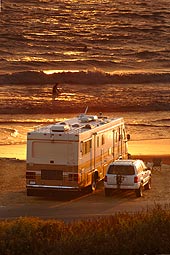
RV Insurance Coverage With GEICO, Because Home Is Where You Park It
RVers encounter situations that are unique to life on the road. So with that in mind, GEICO offers an enhanced Motorized RV and Towable RV insurance policy in most states.* These enhanced recreational vehicle insurance coverages include:
Total Loss Replacement – provides you with a new, comparably-equipped RV if your RV is totaled within its first four model years. When the RV is in the fifth through seventh model years, the settlement is the higher of the actual cash value at the time of loss or the original documented purchase price. After the seventh model year, the settlement is on an actual cash value basis. (Coverage availability may vary by state and vehicle value.)
Replacement Cost Personal Effects – pays for the replacement of your personal items in your RV that resulted from a covered loss. $1,000 or $5,000 of Replacement Cost Personal Effects coverage is automatically included at no additional cost with Comprehensive and Collision coverage depending upon the state in which the RV is rated. Additional limits of coverage are available up to $100,000 for additional premium.
Vacation Liability – pays for Bodily Injury and Property Damage losses that occur at your vacation site. $10,000 of Vacation Liability coverage is automatically included at no additional cost with Comprehensive and Collision coverage.
Emergency Expense Coverage – pays your expenses for hotels and transportation due to a covered loss. $1,000 of Emergency Expense coverage is automatically included at no additional cost with Comprehensive and Collision coverage.
Special Windshield Deductible – charges nothing for RV windshield repair, and $50 for RV windshield replacement.
Medical Payments Coverage for RVs – there are 2 types of medical payments coverage that can apply to RVs. The types available depend on the type of RV you are insuring.
- A campsite or parking site rented or owned by the customer
- Vacant property rented or owned by the customer
- A radius of 25 feet around the vehicle when parked off public roads and legally on public or private property
- Medical Payments Coverage – pays the cost of necessary medical treatment caused in an RV accident, regardless of fault. This coverage would apply to motor homes but not travel trailers.
GEICO covers motorized recreational vehicles including Type A motorhomes, Type B motorhomes (van campers) and Type C motorhomes (mini motor homes), as well as sport utility recreational vehicles.
Travel Trailer Insurance
GEICO provides insurance coverage for towable RVs and travel trailers, including:
- Conventional travel trailers
- fifth-wheel travel trailers
- travel trailers with expandable ends
- folding camper trailers and truck campers
GEICO even covers the toy-hauler you use to transport your motorcycle or ATV .
Steer clear of bumps in the road with RV insurance from GEICO! Call 877-GEICO-RV (434-2678) to speak to one of our RV insurance specialists, Mon-Sun from 8:00 AM - 11:00 PM (ET), or request a quote online .
*Enhanced RV coverage is currently available in all states except: HI, MA, MI, and NC.
Please note:
The above is meant as general information and as general policy descriptions to help you understand the different types of coverages. These descriptions do not refer to any specific contract of insurance and they do not modify any definitions, exclusions or any other provision expressly stated in any contracts of insurance. We encourage you to speak to your insurance representative and to read your policy contract to fully understand your coverages.
We're here for you 24 hours a day, 7 days a week. The quickest way to contact us is through our app or online. You can also chat for immediate help.
RV Insurance Quote
Manage Your RV Policy
RV Safety Tips
Savings for Drivers 50 & Older
Insurance Terms
Colorado Language Preference
Are you a resident of or looking for insurance in the State of Colorado?
We are temporarily unable to provide services in Spanish for Colorado residents. You will now be directed to an English experience.
Estamos encantados de ofrecer nuestra nueva version del sitio web en Español. Apreciamos su paciencia mientras seguimos mejorando su experiencia.

The Storage You Need At The Right Price
Three sites in warren county, mo, facility features.
Your belongings are safe with us. Our well-lit facilities are surrounded by barbed wire fencing, accessible via electronic gated entry, and monitored 24/7 by surveillance cameras.
Welcome to Northwind Self Storage
People rent storage units from Northwind Self Storage for many reasons. Homeowners and renters may need storage while moving, remodeling, or downsizing. Businesses store business records, inventory, equipment, or company vehicles. If you need a secure location for your boat, RV, or trailer, we offer outdoor vehicle parking that is accessible 24/7.
Convenient and Affordable Storage in Warren County, MO
Located just minutes from I-70 and Highway 47, all of our facilities are easily accessible from Warren, Montgomery, and St. Charles Counties. Our friendly and accommodating staff pride themselves on providing the best prices without sacrificing service.
Northwind Self Storage offers a choice between drive-up or temperature-controlled storage units in a variety of sizes and configurations—including a pull-through unit with two doors. Our locations are undergoing an expansion to add covered RV parking with 14-foot doors, additional storage units, and a second office location.
Our Benefits
Customer service.
We offer stellar customer service with a friendly smile—going the extra mile to keep our customers satisfied.
Competitive Rates
We offer reasonable rates with no long-term commitment—plus amenities such as online bill pay and AutoPay.
Secure Facilities
Our well-lit facilities are fenced, gated, and surrounded by trees. Everything is monitored 24/7 by surveillance cameras.
Noke Smart Entry
Enter the Facility and Access your storage unit with the click of a button from your mobile device.
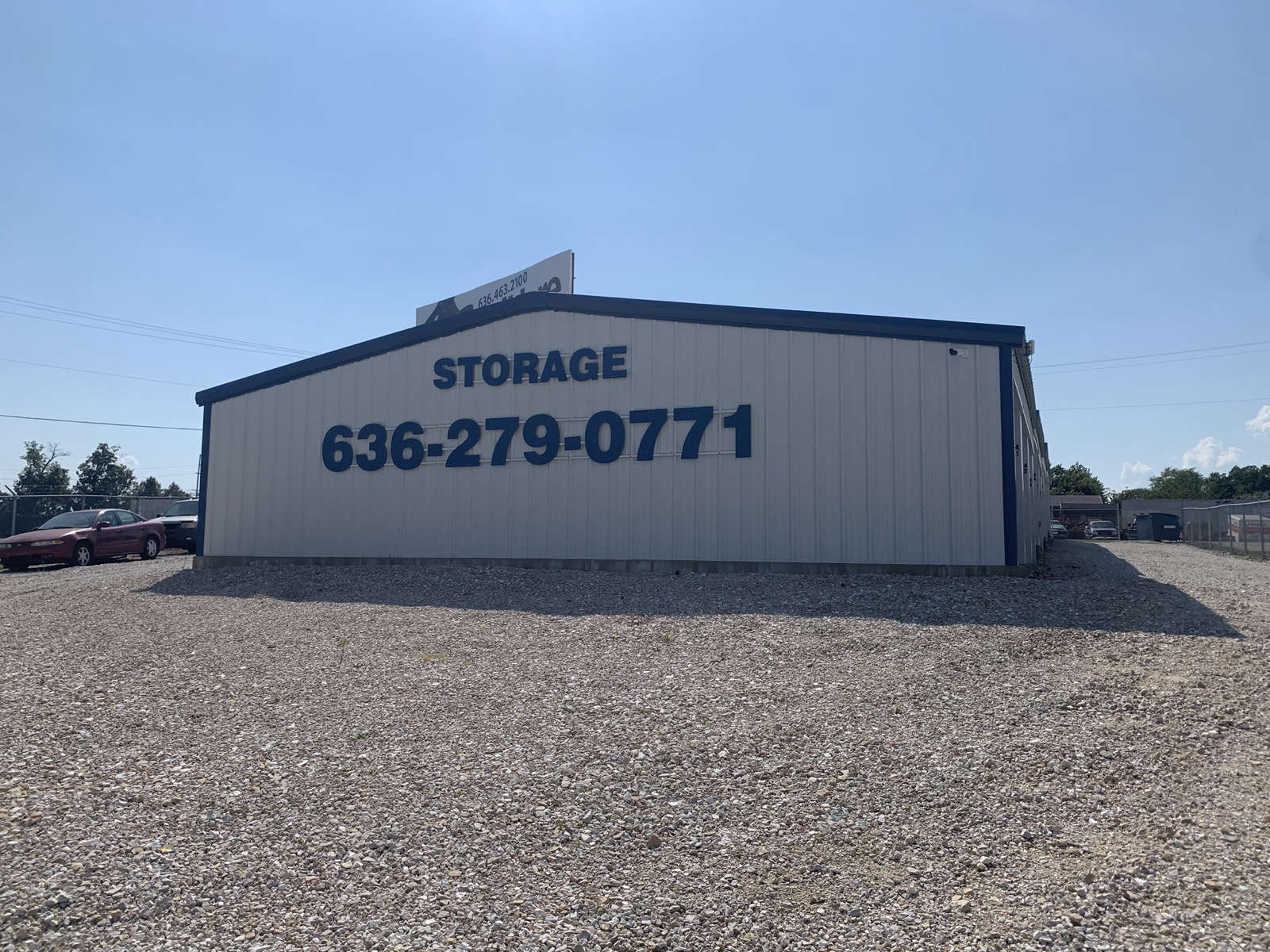
Northwind - Site 1
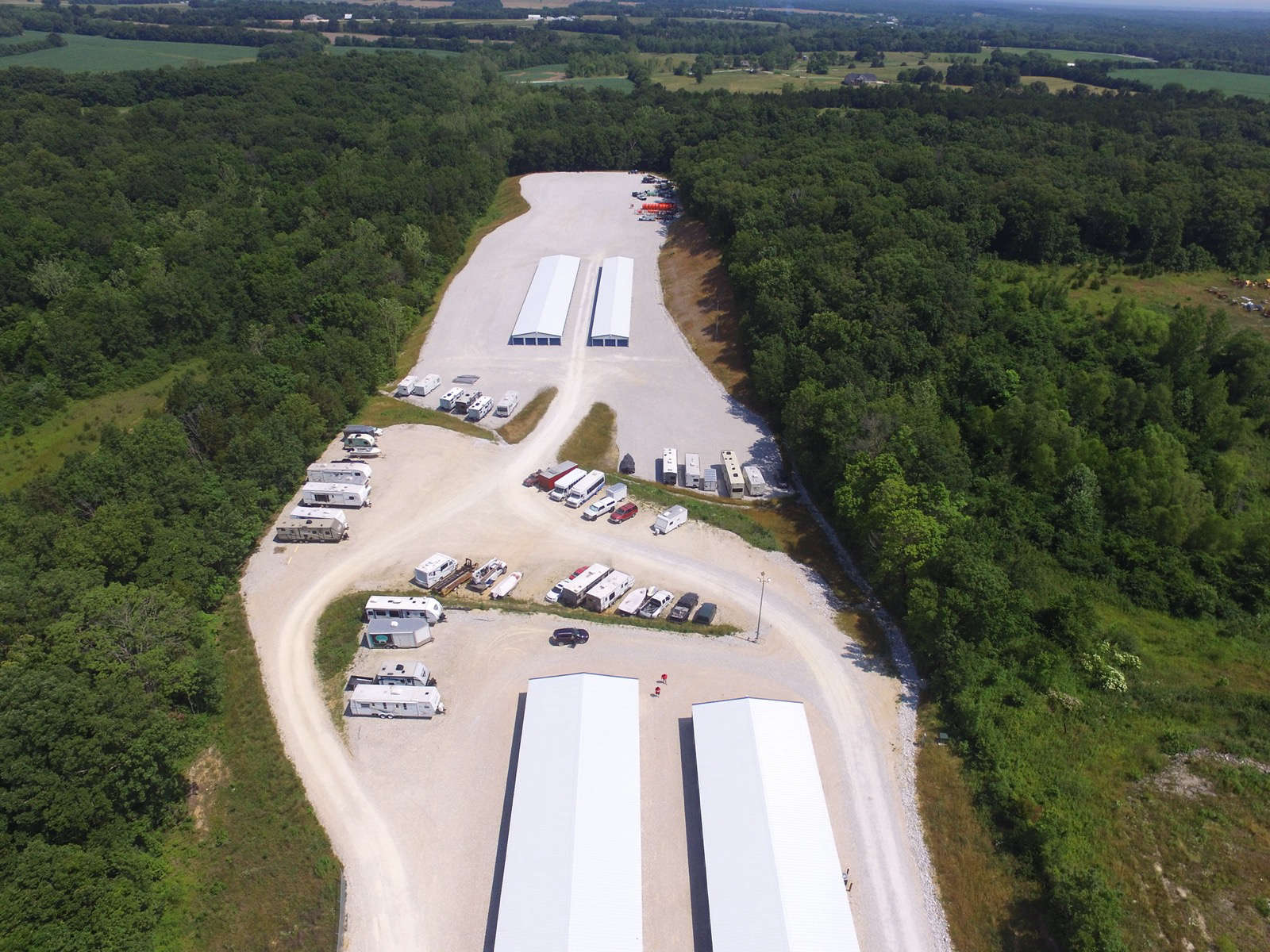
Northwind - Site 2
Northwind premier rv & boat storage.
Northwind has a third location, Northwind Premier RV & Boat Storage, that is exclusively for RV's and Campers. With nearly 50 acres to work with, our newest location offers premium enclosed and outdoor storage space.

How Many Solar Panels Does It Take To Power An RV/Motorhome?
R Vs and motorhomes are the perfect candidates for solar electricity. Not only is solar more eco-friendly and less polluting than gas generators, but it's much quieter. Anyone who's ever hunkered down in an RV campground only to be kept awake by the droning rumble of their neighbors' gas generators knows this for fact.
Thus, installing solar panels on your RV is a fantastic idea. Of course, it can be a somewhat pricey initial investment, even with the recent decline in costs of solar power. Our article on what to know before installing solar panels on your RV explains how it's an affordable endeavor, but not a cheap one. There are also expenses like hardware, installation costs, and even possible retrofitting of your RV to accommodate the new hookup. The first question, however, is how many solar panels you'll actually need.
The question is simple, while the answer is a bit complicated. As you might expect, not every RVer requires the same amount. Factors like sun exposure, personal energy consumption, solar panel model size and capacity, energy storage options, and mounting hardware will determine the number of panels you'll need.
But coming up with an estimate doesn't have to be overwhelming. Here, we've broken down the steps into a straightforward guide to help you get an idea of how many solar panels you'll need to power your RV. This uses many of the same principles as our guide on calculating how many solar panels are needed to power a tiny home , though there are some key differences that we'll go over.
Read more: 12 Smart Gadgets You Didn't Know Existed
Step 1: Estimate How Much Solar Energy You Need Per Day
Before determining how many solar panels you need, you'll first have to estimate how much daily energy you typically use.
To get an estimate, you can add up the daily power consumption of your RV's major appliances. Make a list of all the electronics in your RV. Then, label each with their indicated wattage. Many common appliances, like refrigerators and televisions, are stamped with their wattage on their back panels.
If a device isn't labeled, you can search its model online to find it. You can also search the web for a common wattage of that particular appliance, or refer to the common wattages list provided by EcoFlow . Some devices indicate their voltage and amperage instead, but you can simply multiply the two to get the wattage.
Once you have a list of your appliances and their wattages, estimate how many hours per day you use each. Then, multiply each appliance's wattage by the hours per day you use it, and add everything up. This will provide your total Watt-hours per day you need.
For example, let's say you have a 100W television running 2 hours per day, a 60W refrigerator running 24 hours per day, and a 400W space heater running for 1 hour per day. To find the total, multiply each device's wattage by its daily usage and add everything up.
- (100W television) x (2hr/day) = 200Wh/day
- (60W refrigerator) x (24hr/day) = 1,440Wh/day
- (400W space heater) x (1hr/day) = 800Wh/day
- Total Wh/day = (200Wh/day) + (1,040Wh/day) + (800Wh/day) = 2,040Wh/day
This is an example, so you'll likely have more appliances to include. Whatever number you come up with, write it down to keep it on hand for the next steps.
Step 2: Decide What Kind Of Solar Panels You'll Use
Solar panels have different output ratings, depending on the model. Some are smaller and more efficient, like monocrystalline panels, but they typically cost more. Cheaper options, like polycrystalline panels, are usually less energy- and space-efficient. The third type, thin-film flexible panels, offers easy installation, though they don't last very long –- they're also the least efficient.
Thus, if the available roof space on your RV is limited, you may have to go with monocrystalline panels to make the most of their space-efficiency. You can compare the different model sizes prices, and output ratings on merchants' websites. You can also check out the 5 best solar panels for RVs to see which one works for you. If you can't decide just yet, consider applying the following calculation to each type to see what the final price and space occupancy comes to.
For our calculation, you'll need to find the power output rating of your panel-of-choice. Typically, these range between 100W and 400W. This number indicates the watts the panel can generate in an hour during peak sunlight exposure. When you have a solar panel in mind, write down its power output rating.
Step 3: Estimate The Daily Solar Potential Of Your Area
Now that you have the output rating of your solar panel, you'll have to estimate how many hours of sunlight it will receive per day. To get this number, we recommend looking up your area's solar exposure using either Unbound Solar or Google Project Sunroof .
Of course, in an RV, you'll be moving around, so the daily sunlight will vary depending on your location. To counter this variability, you can map out your travel plans and look up the daily solar exposure of each location. Then, use the daily sunlight exposure of whichever area has the least amount of exposure. That way, you'll have enough solar power in every scenario.
For example, let's say you're traveling from Atlanta, Georgia to Acadia National Park in Maine. Along the way, you intend to stop in Charlotte, Harrisburg, and Hartford. Looking these cities up on Google Project Sunroof, we get the following daily average sunlight exposure:
- Atlanta, GA: 4.3hr
- Charlotte, NC: 4.1hr
- Harrisburg, PA: 3.9hr
- Hartford, CT: 4.0hr
- Acadia National Park, ME: 3.7hr
Thus, you should use Acadia National Park's daily sunlight exposure for the calculation, since it's the least amount. Keep in mind, however, that this value is for your estimate. The idea that solar panels can't generate energy when it's cloudy is one of the common myths about solar panels .
Note: Google Project Sunroof provides the annual hours of sun exposure, so we divided each location's annual sun exposure by 365 to get a daily average.
Step 4: Calculate How Many Solar Panels You'll Need
At this point, you should have an estimate of your daily power consumption, your solar panel's energy output rating, and the average hours of daily sun exposure you'll receive. Now, calculating how many solar panels it will take to power your RV is as simple as plugging in the numbers.
- (Solar panel energy output rating) x (Daily solar potential in hours) = Daily power generation of one panel
- (Daily power consumption) / (Daily power generation of one panel) = Number of solar panels you'll need
Here's an example. Let's say your solar-panel-of-choice's output rating is 300W. Your destination, Acadia National Park, receives an average of 3.7 hours of peak sunlight a day. Your daily power consumption in your RV is about 4,000W. Plugging in the numbers to the above formula, we get the following:
- (300W) x (3.7h) = 1,110Wh
- (4,000W) / (1,110Wh) = 3.6 ≈ 4
Thus, you would need four 300W solar panels to power your RV.
The Final Consideration: Battery Storage
Without batteries to store the electricity your solar panels generate, you'll only have power while the sun is shining. Furthermore, batteries for solar energy storage are often part of larger battery "bank" systems, which regulate the flow of electricity to avoid frying your electronics. (They're sometimes called "Battery Management Systems" and "charge controllers.") Thus, these systems not only provide energy storage, but they also add greater control and security to your setup.
Fortunately, battery technology is rapidly improving these days, and prices are dropping as a result. The five top brands for deep cycle RV batteries often offer complete solar kits with batteries and charge controllers included. Better yet, most solar power batteries list their storage capacity in watts, making your daily power consumption value calculated in Step 1 useful yet again. For example, you can compare the different AM Solar models and their various capacities to get an idea of how many batteries you'll need to meet your daily power consumption needs.
Read the original article on SlashGear


IMAGES
VIDEO
COMMENTS
This is an RV living expense that's easy to overlook but important to keep in mind. Paying for RV storage will ensure that your vehicle is kept in a secure and temperature-regulated environment. However, it does cost quite a bit. Most indoor RV storage costs about $100 per month, as opposed to outdoor RV storage, which is closer to $50 per month.
RV storage fees will depend on factors like location, facility amenities, and storage duration. On average, monthly fees range from $50 to $450. Indoor storage tends to be pricier, averaging $100 to $450 per month, while outdoor storage is cheaper, averaging $30 to $100 per month. Additional costs may include security deposits and extra ...
8 minutes read. The average cost to store an RV is around $130 monthly. However, prices range anywhere between $50 and $450 per month, depending on your area, the size of your RV, and the storage amenities you want. According to Storage.com, a browse-and-compare website for renting and reserving self-storage units, an outdoor storage spot with ...
Depending on the type of RV you own, it can cost anywhere between $100 to $250 per month to store your RV at traditional self storage facilities. With Neighbor, you can find RV storage that's significantly cheaper, ranging from $50 to $150 per month. Ultimately, when it comes to the cost of storing an RV, the final price will depend on the ...
Travel Trailer Tow Vehicle Expenses. Don't forget your tow vehicle costs when factoring your costs of ownership. Your gas bill alone will be the majority of these. We get about 10 mpg when towing down from about 16 with normal driving which is not too bad. ... Outdoor travel trailer storage can cost from $35-$90 depending on the length of ...
A: The cost of RV storage varies depending on the type of storage, location, and amenities. On average, outdoor storage can range from $30 to $100 per month, covered storage can range from $50 to $200 per month, and indoor storage can range from $100 to $500 per month.
As promised….. Here's the spreadsheet I promised so you can work on your own budget for full-time RVing. Just plug in your own numbers - the ones that are on the spreadsheet are only there for reference. I've even added a Master Sheet and a Practice Sheet. Click on the link below to download your copy.
3. Indoor vs Outdoor Storage for Travel Trailers. When considering RV storage options, you'll need to decide whether you want indoor or outdoor storage for your travel trailer. Indoor storage offers greater protection from weather and other elements, but it tends to be more expensive than outdoor storage due to its added protection and ...
On average, RV storage prices can be found as low as $84 a month and up to $400 a month. However, these rates can vary based on location, availability, type of RV storage, vehicle size, additional amenities, and state taxes. We've compiled a list of a few Extra Space Storage's markets across the country to highlight some average minimum and ...
RV ownership includes costs beyond the purchase of your travel trailer or home on wheels. Lucky for you, we've rounded up the top 7 expenses of owning an RV so you can choose a motorhome or camper that fits your budget! From vehicles to insurance and even storage options, we have all of your RV expenses covered.
Unsurprisingly, this is the most expensive long-term storage option for your RV. In return for the added expense, you'll get both superior protection from the elements and the peace of mind that comes with enhanced security for your investment. Some self-storage facilities offer designated storage areas for RVs and 24-hour security.
On average, including the storage costs, payments, insurance, and a couple of road trips a year, the yearly cost of owning an RV is between $16,000 and $42,000, depending on whether you are buying pre-owned or brand new, plus between $1,000 and $2,000 in annual maintenance.
If you finance it for 5 years, you will pay $679.36. In the first scenario, your RV will cost you a total of $51,244.20. In the second, you will pay $40,761.60. You'll pay $10,482.60 more if you choose the 15-year payment option, but doing so will also reduce your monthly payment by $394.67.
In general, RV insurance costs for part-time RV owners can range from around $860 to $1,100 per year in states like North Carolina and Massachusetts. On the higher end, states like Michigan can have average costs of almost $4,500 a year. These are just average prices to give you an idea of RV insurance costs.
Small trailers typically measure between 13 and 20 feet in length and less than ten feet in width, so they can be kept in 10×15 units and 10×20 drive-up storage units. Pay attention to the height of your camper, though. Small trailers can be as short as seven feet tall, but many are taller than eight feet.
Following is our listing for RV storage prices as averaged in all 50 states according to state, storage space required, amenities if any, and monthly or seasonal RV storage rates. 1- Alabama: Indoor units - unheated 10 feet by 20 feet; $99 monthly. 2- Alaska: Indoor units - heated 10 feet by 30 feet; $600 for eight months-seasonal.
You may deduct up to $10,000 ($5,000 if married and filing separately) for a combination of property taxes and either state and local income taxes or sales taxes. While some RV owners live in states, like Arizona, that require residents to file state income tax returns, others do not.
Do the math. First, it is important to know that the standard deduction for 2023 is $13,850 for a single person or $27,700 for a married couple. In 2024, this will go up to $14,600 for an individual and $29,200 for a couple filing jointly. Add up any itemized deductions you might be able to take. If these will be less than the standard ...
Monthly rents here at Moscow RV and Outside Storage - 1346 Harden Road start from $60 and can go up to $70. If you've decided on the perfect space, the only thing left to do is to contact the manager of Moscow RV and Outside Storage - 1346 Harden Road by phone or online messaging. Storage units are generally rented on a monthly basis, which ...
Travel Trailer Insurance. GEICO provides insurance coverage for towable RVs and travel trailers, including: GEICO even covers the toy-hauler you use to transport your motorcycle or ATV. Steer clear of bumps in the road with RV insurance from GEICO! Call 877-GEICO-RV (434-2678) to speak to one of our RV insurance specialists, Mon-Sun from 8:00 ...
People rent storage units from Northwind Self Storage for many reasons. Homeowners and renters may need storage while moving, remodeling, or downsizing. Businesses store business records, inventory, equipment, or company vehicles. If you need a secure location for your boat, RV, or trailer, we offer outdoor vehicle parking that is accessible 24/7.
There are also expenses like hardware, installation costs, and even possible retrofitting of your RV to accommodate the new hookup. The first question, however, is how many solar panels you'll ...
Leave your luggage in any of the 81 storage lockers Moscow-City 399₽ per day Open 24/7 Insurance included Money-back guarantee upon cancellation Suitcase, Backpack, Bag
There are lots to see in the city centre of Moscow, so we decided to start our series of Russia travel videos by showing you around the most historical part ...
also prohibitedthe collection, storage, utilization, and dissemination of information concerning a person's private life without their consent. The law required telecommunications providers to store all electronic and telecommunication data. Politicians from minority parties, NGOs, human
EXECUTIVE SUMMARY. Russia continued its full-scale invasion of Ukraine, and its armed forces committed numerous war crimes and other atrocities and abuses, leading the International Criminal Court to issue arrest warrants for Russian President Vladimir Putin and Children's Rights Commissioner Maria Lvova-Belova in relation to the forced deportation of Ukrainian children to Russia.